
Essay About Courage: Top 5 Examples and 6 Prompts
Courage covers a range of topics and meanings. Here are examples and prompts to help you write your essay about courage.
Many believe bravery and courage mean the same thing and even use them interchangeably. However, though both describe heroic acts, they are not the same. Where bravery is the lack of fear, courage is taking action despite it.
Some argue that courage takes more strength because it means sharing your story even though you may be ridiculed, rejected, and misunderstood. It takes courage to admit when you’re hurt or feel lost, vulnerable, and need help.
If you’re having problems channeling and describing what courage is, here are examples that will assist you in connecting with this subject:
1. My Opinion About Courage by Gary Collins
2. moral courage by fernando wood, 3. courage by benjamin patrick, 4. the importance of courage by saloni, 5. essay on courage by manasi shewale, 1. what does courage mean to you, 2. your most courageous act, 3. a courageous hero, 4. things you are most afraid of, 5. what creates doubt, 6. a time when you failed to show courage and regretted it.
“And even then, she had no grudge against the world. She doesn’t think the world owes her. She never takes money or even grains that she hasn’t earned.”
In this essay, Collins shares his experience with courage through someone named Sunita. Sunita told Collins about her life and what made her who she is. Such as at a very young age, she fought to support herself because no one would have done that for her, and many other tales.
Her stories made Collins realize how lucky he is and how he should be grateful for the many opportunities that come his way without the need to suffer as she did. He also includes that Sunita lives on to inspire others with her courage.
Check out these essays about beliefs .
“Moral courage is standing up for values such as honesty, fairness, compassion, respect, and responsibility but just having these values are not enough we have to try to put them into practice, and we have to commit to moral principles as well…”
Moral courage is doing what’s right and following what your conscience dictates. Wood has three significant elements of moral courage: principle, endurance, and danger.
He explains moral courage through Geoge Norris, Nelson Mandela, and Malala Youssafzai. These people took risks even if their lives were in danger to follow their conscience and do the right things. Wood instills that moral courage is essential in making a critical move, especially when choosing the greater good.
“Courage is the only thing that gets us through the hard times, and the tempting opportunities. Courage is vital to the evolution of the human population. It is also an essential quality to becoming a successful person.”
Patrick discusses how courage helps a person succeed in life. He mentions that we all have courage, but some use it differently than others.
He gives an example of a girl who plays hockey, where the other members are all boys. They looked down on her because of her gender. But instead of giving up, she took it as a challenge and courageously showed them she could play at their level. She became friends with most of the team, but there was one boy who kept on bullying her. The boy misused his courage, but the girl used her courage to fight him off.
“Courage is mental and moral strength to venture, persevere, and withstand danger, fear, or difficulty. It is the firmness of mind and will in the face of danger or extreme difficulty.”
Saloni’s essay shows two kinds of courage: physical and moral. People who depend on physical strength show physical courage. They can protect and help others. If a person is weak, they are not physically courageous.
On the other hand, one’s honesty connects to their moral courage. They are the ones with convictions and don’t support evil works. Even if you are a weak person, you can still be morally courageous. Unfortunately, this courage is rare nowadays because people are afraid of being attacked mentally and emotionally. To be morally courageous means to be a fighter to go against wrong-doings.
“It is very difficult to keep up your morals and therefore, gather up the necessary courage to fight against the wrong situations. Therefore, in today’s date, it is even rarer to find a person with the proper morals required to live a satisfactory life.”
Shewale shares little acts of courage in our everyday lives – such as a girl who loves to dance but is afraid of the stage or a person who’s readying themselves for a job interview. Courage is not only shown in grand scenes but in small acts that help us survive our daily lives.
The author further discusses events where courage helps in more controversial fields, such as injustices to farmers and students’ bullying.
If you want to upgrade your writing style, check out these top essay writing tips to level up your essay.
6 Prompts on Essay About Courage
After reading relevant examples in essays about courage, it’s now your turn to try your hand at creating one. Below are prompts that can guide you in your essay writing:
There is no one definition of courage. It differs from each individual, and its meaning is affected by our experiences and knowledge. In this prompt, share the word “courage” and discuss what courage means to you. When do you feel courageous, and why? Then, describe personal experiences of being courageous or stories of courageous people who inspire you.
Think about a time when you were courageous. Create an essay based on this event and describe in detail what happened. Convey your thoughts and feelings, and show why you were courageous.

Write an essay about a hero in your life. This could be a celebrity you admire, a relative or friend, or a teacher in school. Describe why this person is courageous, why you look up to them, and how they inspire you. Make sure to include fine details of their personality and how they act. This will make for an exciting and compelling essay.
The first step to being courageous is acknowledging you are afraid. Then, to get your fears out of the way, you need to identify what and why they exist. This prompt lets you connect with your readers who have the same worries.
For example, you can share that you’re afraid of rejection, being alone, etc. Then, discuss why and what you plan to do to overcome them. You can also write about how you plan to be courageous while still afraid.
Our greatest challenge to succeeding in something is doubting ourselves. When we doubt ourselves, we start to think of all the things that can go wrong. So we show our courage by being afraid of these negative consequences but still trying and hoping for a good result.
Share an experience when you still tried, even when you’re unsure. It doesn’t need to have the best ending. You only have to prove that it’s better to try and fail than fail without trying at all.
There will always be times when we desperately want to be more courageous but fail to do so due to various factors. Write about that experience, share your feelings, and what you’ll do if you have the chance to repeat that situation.
Do you want to write about another topic aside from courage? Check out this list of best writing topics for students !

Maria Caballero is a freelance writer who has been writing since high school. She believes that to be a writer doesn't only refer to excellent syntax and semantics but also knowing how to weave words together to communicate to any reader effectively.
View all posts

Short Essay on Courage in English for Students
C ourage is the ability to face any dangerous or painful situation. Courage can be physical or moral. Physical courage is when one can face any physical pain. Moral courage is to do the right things in every situation. We have many examples of courageous people like freedom fighters and soldiers.
Courage comes from many things. Some people have courage in them and some people learn it. Confidence plays an important role. One can face a difficult situation when one is confident about one’s skills.

Knowledge is also important because it helps to know how to deal with some situations. Some people train themselves with time to fight their fears. They do not run away and try to face those things which make them afraid. Moral courage comes from a strong will. A person always does the right thing if he knows that goodness is always rewarded.
Courage is good quality and it helps a person in many ways. It increases one’s confidence and he can do things easily. Courage helps a person to experience many situations. This helps him to know about different places, people, things. It also helps a person to live a true live. He does the right thing and so he lives happily. Such people are always admired by everyone and he becomes an example for others. This makes the entire society good.
Courage is a quality which we all should learn. It is a quality which helps us to stand against any wrongdoings. We should remember that even our small contribution can change society.
What is the importance of courage?
Courage helps to develop your personality. It helps to face the situations by being bold and wise. One should have both physical and moral courage.
What are the different kinds of courage?
These are different kinds of courage
- Physical Courage
- Moral Courage
- Spiritual Courage
- Emotional Courage
- Social Courage
- Intellectual Courage
Related Posts:
- Of Marriage and Single Life by Francis Bacon | Summary & Analysis
- Short Essay on Freedom Fighters in English
- Of Friendship Essay | Summary by Francis Bacon
- Common Conversational Phrases in English [List of 939]
- Random Phrase Generator [English]

Courage for Students
- Intentionality
- A “Noble” Goal
A high school student is trying to decide whether to represent her school in a math competition. She’s worried about embarrassing herself if she is not able to solve a problem. She’s afraid of disappointing others. After much thought, she decides to take the risk and to support her school.
After the teacher calls for volunteers to share how they solved the equation, an extremely shy student pauses, deliberates, and then decides to raise his hand. Although he almost never speaks at school, he wants to face his almost paralyzing fear of public speaking.
When a kindergartener hears his peer yelling, “You can’t play with us” to a smaller boy at recess, he immediately intervenes and invites the boy to join his game.
Why is it important?
Courage enhances student well-being..
- Adolescents higher in courage report greater satisfaction with their lives. And later in life, greater courage is related to a greater sense of purpose and life satisfaction.
Courage helps students to navigate social and emotional challenges.
- Greater courage in adolescents is related to the use of more self-directed coping . Thus, in schools the practice of courage could help students better adapt to difficult situations and attain their personal and academic goals.
Courage prepares students to take academic risks.
- Rather than avoid an assignment, students who engage in “academic courage” learn to persevere through a difficult learning task despite their fear, leading to more positive academic outcomes.
Courage emboldens students to speak up in the face of injustice.
- Safe and supportive learning environments can be more conducive to courage, and when students learn to advocate for others, they contribute to creating a more welcoming environment themselves.

Art on Purpose

Courage Blooms

Courage Challenge
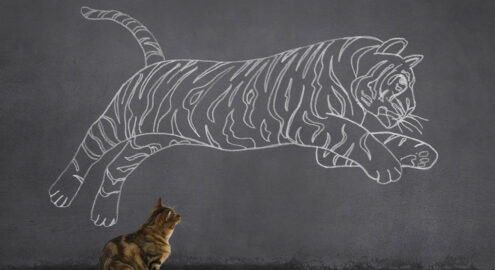
Courage Creatures

Identifying Acts of Courage
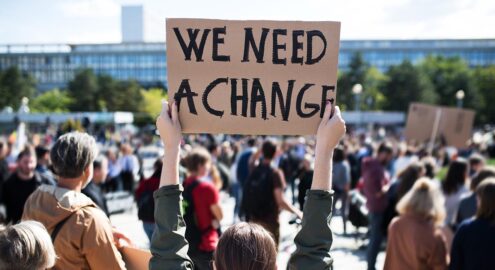
Courageous and Compassionate Citizens

Developing the Courage to Speak Up

The Bystander’s Dilemma: What Does Courage Look Like?

Inspiring Students to Help

Literacy Book Bags to Encourage Courage

Reflecting on Moral Dilemmas with Practical Wisdom
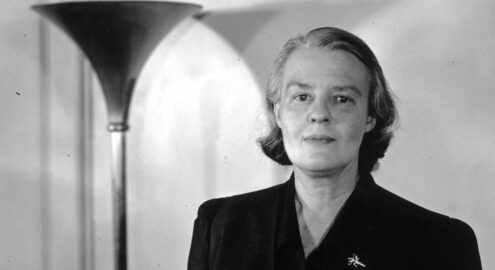
Truth in Journalism and Dorothy Thompson

Learning from Courageous Forgivers

Compass Points

Crumpled Reminder

It's Up to Us to Stick Our Necks Out

Who Are Your Heroes?
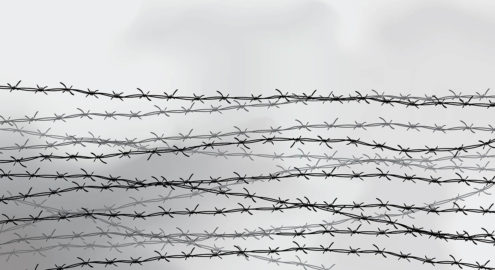
From Sympathy to Action

GGIE Online Courses for Educators
Do you want to dive deeper into the science behind our GGIE practices? Enroll in one of our online courses for educators!
You Might Also Like

Courage in Education
Essay on Courage

Writing a courage essay is an engaging task allowing students to express their viewpoint on bravery and showcase their writing and analytical skills. This subject seems too broad, which may be a stumbling point for inexperienced students. Actually, there are many courage aspects to tell about in your essay. If you have been assigned to create a courage essay, read the article to find a guide and ideas.
Table of Contents
What is Courage Essay?
A courage essay is a type of academic assignment in which a student describes what courage means to them. Writers can tell about heroic personalities from books and movies or real life as well as heroic acts. It’s great to write about your own moments of bravery. An essay on courage celebrates acts of bravery and overcoming fears and doubts. This written assignment may take different types, like descriptive, analytical, argumentative, and expository; and style, like clearing, defining, and illustrating courage.
An essay on courage, like any other essay type, consists of an introduction, body, and conclusion. The introductory part presents your theme and gives background info and a thesis statement. Your essay may include three body paragraphs providing core arguments and evidence. You should start each paragraph with a topic sentence and ensure they relate to your thesis. In the conclusion, you tie the main points together and prove the importance of your essay and argument.
Best Courage Essay Ideas for You
Courage is quite a subjective concept that is not easy to define. People define it in their own way based on experiences and values. So what to tell about in your courage essay to engage readers and self-express? Here’s a list of useful essay ideas to describe bravery.
The Meaning of Courage
Since courage is a multi-faceted concept, you are free to write what courage means to you. An essay writer can tell when they felt courageous and why. It’d be great to describe remarkable and simple deeds done by you or someone else. You can use stories of courage from fiction or movies to diversify your view on bravery.
What Makes People Doubt
Many things make us doubt, and courage helps us overcome fear and start doing something. A courage essay may tell about how you try and hope for good results regardless of fears and doubts. It may be your own experience or someone else’s story of doubts to try. You know that it’s better to try and fail than regret the whole life about the lack of courage.
Courage to Be Yourself
Another great idea for an essay on courage is to tell about the bravery of being who you are. You can speak of your experience of overcoming insecurities and standing out of the crowd. It’s also possible to tell a story of real people or fictional characters who remain true to themselves despite any challenges.
How to Build Courage
You can create an essay giving tips for developing courage. There are different factors influencing how our courage is manifested, like environment, genetics, personality, etc.
The Time When You Failed to Show Courage
We cannot always be brave, and there are cases when one wants to be more courageous but fails. Do not be ashamed of these experiences and feelings to show how you evolved.
Courage Thesis Statement
As you know, an integral part of a courage essay is an introduction that contains a thesis statement. Your thesis statement asks a question about an issue of courage you explore. It is a sentence that includes the main idea. A strong thesis statement is concise and coherent. For example, courage is vital for everyone, but how to not be afraid of courageous acts?
Courage and Heroism Essay
Students can generate courage and heroism essays based on well-known movies and fictional characters. It’s useful for those who aren’t familiar with real heroes and heroic acts. Your courage and heroism essay should tell what inspires you in a courageous person and their deeds. You can even describe in your essay several heroic personalities from real life and fiction.
If you need help with writing your courage essay, contact our writers.
What are the 5 types of courage?
There are five courage types: physical, emotional, intellectual, social, and moral. You can describe one of these types in your courage essay.
What can I write about courage?
Courage is a subjective concept, so you can write about different courage aspects, your perception of bravery, interesting courage examples from life and fiction, fears, and doubts.
Why is courage important in life?
Courage helps us be ourselves, achieve goals, and not be afraid of failing.

15% OFF Your first order!
Aviable for the first 1000 subscribers, hurry up!
You might also like:

150 Qualitative and Quantitative Nursing Research Topics for Students

Why You Should Read a Data Gathering Procedure Example

What Is Culture and What Are Some Popular Culture Essay Topics?
Money-back guarantee
24/7 support hotline
Safe & secure online payment

Essay on Personal Courage
Students are often asked to write an essay on Personal Courage in their schools and colleges. And if you’re also looking for the same, we have created 100-word, 250-word, and 500-word essays on the topic.
Let’s take a look…
100 Words Essay on Personal Courage
What is personal courage.
Personal courage is being brave in the face of fear. It’s about doing the right thing, even when it’s hard. Imagine standing up to a bully or speaking in front of a class. It takes guts to face challenges and not run away.
Types of Courage
There are many kinds of courage. Physical courage is about risking your safety. Moral courage means standing up for your beliefs. Emotional courage involves sharing your feelings, even if you might get hurt.
Why It Matters
Courage is important because it helps us grow. When we are brave, we can make new friends, learn new things, and become stronger inside. It’s like a muscle that gets better the more you use it.
Examples in Everyday Life
You show courage when you try new foods, ask a question in class, or help someone who is in trouble. It’s not just for superheroes; it’s for everyone, every day.
Building Personal Courage
You can become braver by practicing. Start with small things, like riding a bike without training wheels. Each brave act makes the next one easier. Remember, it’s okay to be scared; what matters is that you don’t let fear stop you.
250 Words Essay on Personal Courage
Personal courage is the strength to face fear, pain, or challenges. It’s like being a superhero in real life, but instead of fighting bad guys, you’re battling your own fears. It’s not about being fearless, but about choosing to move forward even when you’re scared.
Types of Personal Courage
There are two main types: physical and moral. Physical courage means you can stand up to physical pain or danger, like defending a friend in trouble. Moral courage is standing up for what’s right, like speaking the truth even when it’s not easy.
Why is it Important?
Courage is key to growing up. It helps us try new things, like making a new friend or learning to swim. It also helps us stand up for ourselves and others. With courage, we can face bullies or admit when we’ve made a mistake.
How to Build Courage
Building courage takes practice. It’s like a muscle that gets stronger the more you use it. You can start with small challenges, like asking a question in class. Each time you face a fear and overcome it, you become a little braver.
In conclusion, personal courage is a special power we all have inside us. It helps us face tough times and do the right thing. Remember, being courageous doesn’t mean you aren’t afraid; it means you’re brave enough to go on despite the fear.
500 Words Essay on Personal Courage
Personal courage is about being brave and facing your fears. It’s not just for superheroes or soldiers; it’s for everyone. Imagine standing in front of a crowd to give a speech or trying something new like riding a bike for the first time. That feeling in your stomach, like butterflies fluttering, is fear. Being courageous means you go ahead and do it, even though you’re scared.
Courage comes in many forms. Sometimes it’s doing something big, like moving to a new city. Other times, it’s small, like asking a question in class. Physical courage is when you might get hurt, like falling off a bike. Moral courage is when you stand up for what’s right, like telling the truth even if it gets you in trouble.
Why Is It Important?
Being brave helps us grow. When you try new things, you learn and become stronger. It’s like a muscle; the more you use it, the stronger it gets. Courage also helps us to be good friends and family members. When we stand up for others, we show that we care and are willing to protect them.
Stories of Courage
Think about your favorite stories. Many of them have brave characters, like Harry Potter fighting a dragon. These stories inspire us. They show us that even when things are hard, we can be brave and do what’s right.
You can become more courageous. Start with small steps. If you’re afraid of talking to new people, start by just saying “hi” to someone. Keep practicing, and soon, you’ll be having full conversations. Remember, it’s okay to be scared. Everyone is scared sometimes. The key is to not let fear stop you.
Personal Courage in Everyday Life
You don’t have to fight dragons to be brave. Personal courage is also about standing up to bullies, trying a food you’ve never eaten before, or admitting when you’ve made a mistake. It’s about being honest with yourself and others.
Encouraging Others
When you see someone else being brave, cheer them on. Tell them they did a good job. It can make a big difference. And when someone encourages you, it feels good and helps you keep being brave.
Personal courage is a special kind of bravery that everyone has inside them. It’s about facing your fears, big or small, and doing the right thing even when it’s hard. By being brave, we learn, grow, and can help others. Remember, it’s okay to start small, and with each brave step, you’ll become more courageous. So, next time you’re feeling a little scared, take a deep breath, and remember that you have the power to be brave.
That’s it! I hope the essay helped you.
If you’re looking for more, here are essays on other interesting topics:
- Essay on How I Spent My Holiday
- Essay on Personal Challenges
- Essay on Personal Beliefs
Apart from these, you can look at all the essays by clicking here .
Happy studying!
Leave a Reply Cancel reply
Your email address will not be published. Required fields are marked *
Save my name, email, and website in this browser for the next time I comment.
- Skip to primary navigation
- Skip to main content
- Skip to primary sidebar
Student Essays
Essays-Paragraphs-Speeches
Essay on Courage | Meaning, Types, & Purpose of Courage in Life
Leave a Comment
Courage is often described as a virtue representing one’s ability to perform actions despite external threats, social sanctions or internal fears, and is considered to be a defining quality of a hero.
List of Topics
So, the simple answer to this question is that courage is doing something despite fear, but courage is actually much more than that. Courage is the ability to do what you feel is right in spite of external pressure or personal fears; It’s not about being completely unafraid, or not fearing anything.
Essay on Courage | Meaning, Value & Necessity having Courage in Life Essay for Students
Courage is calling out sexism when you see it, even if it might make you unpopular. It’s saying no when someone makes a pass at you, even though they may turn violent. Courage is standing up for yourself and others when a group of people are making racist jokes about minorities, even though those people may be stronger than you.
>>>>>> Related Post: Essay on Teamwork Value & its Importance
Courage is lacking the will to run away from your responsibilities, the will to stand up for yourself and others if you can see that they are wronged, or even just refraining from saying something stupid because there’s a chance people will laugh at you.
Types of Courage
There are three main types of courage: physical, moral and existential. Physical courage is the type that most people think of when they hear the word ‘courage’: The bravery to face any kind of physical pain or difficulty, especially in dangerous circumstances. Moral courage is the ability to do what’s right even when it means standing up for yourself or other people in the face of opposition. Existential courage is the ability to come to terms with existential problems, big or small, that may arise in life.
Importance of Courage in Life
Courage is a refusal to allow external pressure or personal fears to prevent you from doing what you know is right. It’s not about being completely unafraid, or not fearing anything; it’s the ability to do what you feel is right in spite of external pressure or personal fears. So, courage is not about never feeling afraid or always being heroic and overcoming your fears; it’s about acknowledging that fear exists but choosing to do what you think is right anyway.
Courage isn’t just important in life because it’s necessary for doing good things that need to be done, but also because it has positive effects on your mental health. Many of the people who are brave enough to call out sexism, racism, bigotry, homophobia, etc.
How to develop Courage?
”Courage is the first of human qualities because it’s the quality which guarantees all others.’ ‘- Winston Churchill.
So, gathering courage isn’t an easy task but if you want to be courageous you have to start by cultivating your bravery, self-confidence and self-esteem. You can begin this process by gradually working towards facing your fears. You can start with small things that you’re a bit afraid of and work your way up to bigger obstacles over time. Once you face a fear, it becomes less scary, so this process will help you feel more empowered and build confidence.
What Courage teaches us?
‘Courage is being scared to death, but saddling up anyways.’ – John Wayne
So, if you’re a student courage can teach you a lot of great things. Courage teaches students the importance of seeing things through to the end no matter what obstacles may come their way. Many times life will hand us some pretty big setbacks and it’s important to have the courage to push through them anyway. If you’re a student who’s facing several struggles, don’t let these roadblocks stop you from working towards your goals.
>>>>>> Related Post: Essay on Stress Management in Life
Thus, in this article i have tried to elaborate the importance of courage in life. In a nutshell, i can say that when our minds are capable of overcoming fear and doing what we know is right in spite of opposition, when we have the strength to stand up for ourselves and others despite what might happen, then we’re truly living courageously.

Related Posts:
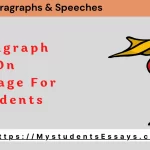
Reader Interactions
Leave a reply cancel reply.
Your email address will not be published. Required fields are marked *
Save my name, email, and website in this browser for the next time I comment.
5 Inspiring Essays on Courage
Courage is a value held in high regard. There are countless quotes and explanations of what “courage” is. Some believe it’s the same as being fearless, while others say that courage is doing the right thing even if you’re afraid. Brene Brown says that “You can choose courage, or you can choose comfort, but you can’t choose both.” Courage is about stepping outside of what’s familiar and comfortable. Here are five essays exploring what courage looks like:
“The Gift and Power of Emotional Courage” (2017) – Susan David
While technically not an essay, the transcript from this 2017 TEDTalk (and the speech itself) is a powerful exploration of emotional courage. Dr. Susan David, who lost her father when she was 15, describes how she dealt with grief. Societies often encourage people to suppress these types of emotions. She talks about a “radical acceptance” of every emotion, even the hard ones, and how this acceptance is necessary for true happiness. This acceptance isn’t easy. It takes courage. She has an especially poignant way of describing courage: she calls it “fear walking.”
Dr. Susan David is a world-leading management thinker and Harvard Medical School psychologist. She’s also an author and contributor to publications like The Harvard Business Review, New York Times, and more. David lectures around the world for clients like the United Nations, Google, and the World Economic Forum.
“Profile in Courage” (2004) – Dana Calvo
The photo of a single protester facing off a line of tanks is one of history’s most iconic images. In this essay from Smithsonian Magazine, readers learn the story behind it. In 1989, students from over three dozen universities gathered in Tiananmen Square to protest government corruption, joblessness, and attacks on free speech. The government declared martial law, sending tens of thousands of troops to the area. Violence erupted. Several hundred protesters were killed, thousands wounded. The story of the photograph, taken by 33-year old Jeff Widener of the Associated Press, is a story of courage.
Dana Calvo is a former national and foreign journalist. She now works in television.
“This Is A Crisis of Civil-Military Relations” (2020) – Eliot A. Cohen
In this piece, author Eliot Cohen examines what’s going on with military leadership in the age of the Trump administration. While these people are willing to “take a bullet” for America and take on responsibility for the “gravest decisions anyone can make,” they must now show a different kind of courage. Under President Trump’s leadership, the military brass must stand up and risk getting fired. While this essay describes a specific situation between two incredibly powerful branches of American society, it taps into the essence of courage. Courage comes with risks. It often requires people to risk something they didn’t anticipate losing.
Eliot A. Cohen is the dean of The John Hopkins University School of Advanced International Studies. He served as the Counselor of the Department of State from 2007-2009. A contributing writer at The Atlantic, he’s also the author of The Big Stick: The Limits of Soft Power and the Necessity of Military Force.
“How To Find and Practice Courage” (2020) – Manfred F. R. Kets de Vries
This essay opens with a story of a CEO who went against shareholder advice to do what he believed was right, even as he feared the consequences. What gave him courage? Had it always been there under the surface? If you’re interested in brain science and the psychology behind courage, this is a great piece. At the end, it offers techniques on how to “practice courage,” such as going out of your comfort zone and taking care of your body when it’s afraid.
Manfred F.R. Kets de Vries is a psychoanalyst, management scholar, and executive coach. At INSEAD in France, Abu Dhabi, and Singapore , he is the Distinguished Clinical Professor of Leadership Development and Organizational Change. He wrote Down the Rabbit Hole of Leadership: Leadership Pathology in Everyday Life (2018).
“The Six Attributes of Courage” – Melanie Greenberg
What is courage? It’s something most people recognize when they see it, but there are different kinds of courage. In this essay, Dr. Greenberg briefly describes six defining characteristics of courage. She uses quotes from people like Nelson Mandela, Ralph Waldo Emerson, and others. Attributes include following your heart and letting go of what’s familiar and comfortable. The piece concludes with a courage-building exercise.
Dr. Melanie Greenberg is a psychologist, speaker, author, and coach. Her book The Stress-Proof Brain is an Amazon bestseller. She travels the world giving talks to non-profits, businesses, and professional organizations. Active on Twitter, she has been featured in media like CNN, Forbes, BBC Radio, and more.
Home — Essay Samples — Life — Emotions & Feelings — Courage
Courage Essays
Prompt examples for courage essays, defining courage.
Define courage in your own words. What does it mean to be courageous? Explore the different facets of courage, from physical bravery to moral and emotional courage. Provide examples to illustrate your definition.
Personal Courage
Share a personal experience that required you to demonstrate courage. Describe the situation, the challenges you faced, and the reasons behind your courageous actions. Reflect on what you learned from that experience.
Courage in Literature
Select a literary work that prominently features the theme of courage. Discuss how courage is portrayed in the story, the characters who exhibit courage, and the impact of their courageous acts on the plot and themes.
Historical Examples of Courage
Examine a historical figure or event that exemplifies courage. Provide details about the person's actions or the event's circumstances, and analyze why these examples are often celebrated as acts of great courage.
The Psychology of Courage
Explore the psychological aspects of courage. Discuss what motivates individuals to overcome fear and take courageous actions. Consider the role of fear, resilience, and determination in acts of courage.
Moral Courage
Discuss the concept of moral courage. How does one exhibit courage when facing ethical dilemmas or standing up for one's beliefs? Share examples of individuals who displayed moral courage in the face of adversity.
Courage in the Face of Fear
Examine instances where individuals acted courageously despite experiencing fear. Discuss the relationship between fear and courage and how overcoming fear can lead to acts of bravery.
Everyday Acts of Courage
Highlight the importance of everyday acts of courage. Discuss how small acts of courage in daily life can make a significant impact, whether in relationships, personal growth, or social change.
Courage and Resilience
Explore the connection between courage and resilience. How does courage contribute to an individual's ability to bounce back from adversity or overcome challenges? Provide examples of resilience through courageous actions.
Courageous Leaders
Examine the role of courage in leadership. Discuss leaders who have demonstrated courage in their decisions and actions, and evaluate the impact of their leadership on society, organizations, or movements.
Words to Describe Anne Frank
The impact of oprah winfrey: media, philanthropy, and social change, made-to-order essay as fast as you need it.
Each essay is customized to cater to your unique preferences
+ experts online
The Courageous Legacy of Nelson Mandela
Understanding the importance of courage in life, the theme of courage in to kill a mocking bird, a novel by harper lee, courage as the most important law of life, let us write you an essay from scratch.
- 450+ experts on 30 subjects ready to help
- Custom essay delivered in as few as 3 hours
Courage and Bravery in Roll of Thunder Hear My Cry by Mildred Taylor
The connection between courage and justice based on aristotle's literature, the views on bravery as highlighted in the things they carried, the dynamic nature of heroism in today's society, get a personalized essay in under 3 hours.
Expert-written essays crafted with your exact needs in mind
The Courageous Character of Cyrano in Cyrano De Bergerac, a Play by Edmond Rostand
Bravery in the red badge of courage and in my life, the thematic idea of courage in the serpent king by jeff zentner, amelia earhart – a hero in american history, amelia earhart and her courage to break gender stereotypes, amelia earhart: facing the paper tigers, the theories of amelia earhart’s disappearance, understanding the meaning of courage and its importance, human traits in beowulf, examining profiles of political courage in american government, profiles in lee's 'to kill a mockingbird' as examples of courage, standing up for what is right, political courage: navigating principles in governance, courageous quotes in beowulf, analysis of courage in chains, how does atticus show courage.
Courage (also called bravery or valor) is the choice and willingness to confront agony, pain, danger, uncertainty, or intimidation.
Physical courage is bravery in the face of physical pain, hardship, even death, or threat of death; while moral courage is the ability to act rightly in the face of popular opposition, shame, scandal, discouragement, or personal loss.
Relevant topics
By clicking “Check Writers’ Offers”, you agree to our terms of service and privacy policy . We’ll occasionally send you promo and account related email
No need to pay just yet!
We use cookies to personalyze your web-site experience. By continuing we’ll assume you board with our cookie policy .
- Instructions Followed To The Letter
- Deadlines Met At Every Stage
- Unique And Plagiarism Free
- Classroom Activities
- Middle School
- High School
- Helpful Articles
- Dangers of Vaping/JUULing
- Ethical Dilemmas Archive
- Service Learning
- Character Ed in Sports
- Organizations
- School-to-Work
- Elem Classroom Activities
- Useful Links
- Live Wire Media
- Vaping & Juuling
- Careers & Financial Literacy
- Social Media & Cyber Safety
- Mindfulness
- Character Counts!
- Character Education
- Sex & Dating
- Social Emotional Learning
- Drugs & Alcohol
- Setting Goals
- Michael Pritchard
Teaching Guide: COURAGE
- For grades 7-12
This material is from the teaching guide for the video “ Courage “ in the 10-part DVD series In Search of Character
Are You a Person of Courage? (Take this self-evaluation and decide for yourself.)
“We must build dikes of courage to hold back the flood of fear.” – Martin Luther King, Jr .
(If you wish to copy or use any material from this website, please click here for Terms of Use.)
DISCUSSION QUESTIONS
If you are using the video, ask questions 1&2 before viewing.
1. Thomas Jefferson said that one person with courage is a majority. What does that mean to you?
2. What is courage?
3. How did Arturo’s story (in the video) make you feel? What did you learn from it? What were some of the pressures Arturo encountered and how did he overcome them? What risks did he take, and why? How big a factor was courage in Arturo’s success? Is it realistic to think that the average teenager could stand up for him/herself the way Arturo did, or is Arturo just a special case?
4. What is moral courage? What are some historic and recent examples of moral courage or moral cowardice?
5. What things in your life require moral courage?
6. Is peer pressure a very strong influence in this school? Does it take courage to resist peer pressure?
7. What does it mean to have principles? What are some of your principles? How much are you willing to risk for your principles? Would you risk being criticized or losing popularity?
8. What do you think stops people from taking a stand against something they know is wrong?
9. In the Arturo documentary, Joe Marshall distinguished between fearship and friendship . What do you think he meant by fearship? How does it differ from friendship? Can you give any examples from your own experience?
10. Some of the teens in this video talked about standing up for kids who were being picked on. Have you ever stood up for someone who was being picked on or treated unfairly? Would you do it again? What did you learn from that experience?
11. Are there kids in your school who pick on others? How do you feel about it? Why do people allow that to happen? What could you do about it?
12. Dr. Mike’s co-host, S.E., quoted an old saying that you can’t discover new continents without losing sight of land. What does that mean to you? Have you ever had that kind of an experience? What did you learn from it?
13. Dr. Mike talked about having the courage to be yourself. What do you think that means? How can it require courage to be yourself?
14. Dr. Mike said that evil will continue to triumph as long as good people do nothing. What does that mean? Do you agree?
15. Is courage something you have to be born with, or can you develop it?
16. What does courage have to do with the quality of your character?
WRITING ASSIGNMENTS
1. Pick any of the discussion questions, above, and write an essay on it.
2. Describe a situation in which you showed moral courage. What was hard about it? What did it accomplish? How did people respond before you took your stand? What did they say to you afterwards?.
3. What was the hardest stand you ever had to take with your friends? Did it cost you anything? What were the benefits?
4. Have you ever gone along with the crowd even though you knew it was wrong? How did you feel about yourself? What did you learn from it?
5. Write about a time when you had to give up friends because they became a negative force in your life? In what way did that take courage?
6. In what ways have you demonstrated courage in your life?
7. Consider the following behavioral definition of what courage means: – Stand up for what is right, even if you stand alone. – Don’t cave in to negative peer pressure. – Don’t avoid trying something for fear of making a mistake or failing. – Don’t be afraid to express yourself just because some people might disapprove. Write an essay on any or all of the points in this definition of courage.
8. Write a letter to someone in the news whose courage has impressed you.
9. Write an essay about a historical event in which courage played a major role. (The civil rights movement offers many good examples.)
Other teaching guides in this series:
STUDENT ACTIVITIES
1. What does it take to stand up against negative peer pressure? As a class, discuss the kinds of peer pressure that exist at your school. What makes it difficult to resist these pressures? Develop some good strategies for standing up to them. Compile this into a written report for the students in your school.
2. Profiles in Courage: Have the students, either individually or in groups, identify acts of courage by people in the news or by people in your school or community. Then have each individual or group make a presentation to the class and conduct a discussion. What do these selections have in common? What are their differences? What can the students learn about themselves from the selections they made? What have they learned from the people they selected?
3. Have your students bring in articles from magazines and newspapers describing situations in which moral courage is an issue. Conduct a discussion in which they decide who is acting courageously and who isn’t. What difference does it make?
4. Role play some typical situations which require taking a courageous stand against a group or an individual. After each improvisation have a discussion. What important principle or issue was at stake? How well did the individual stand up? What could he/she have done better? What did you learn from this?
5. Have your students search the web for quotations and other inspiring or provocative writings on courage. Compile this into a book.
It takes a lot of courage to stand up for what’s right when we stand alone. Or to do what’s right despite disapproval and negative peer pressure. Learn more . . .
Click play for a sampling of “In Search of Character”
This award winning DVD series spotlights ten core virtues that help teens develop into caring, respectful, responsible people who make choices based on what’s right, rather than what they can get away with. Learn more . . .
For more information about individual videos in this series, click on the title below.
If your school or organization does not have these videos, you can purchase them from Live Wire Media , or request them from your local library.
Share this:
Greater Good Science Center • Magazine • In Action • In Education
Education Articles & More
Six ways to find your courage during challenging times, courage doesn’t have to look dramatic or fearless. sometimes it looks more like quiet perseverance..
“We teach who we are,” says educational philosopher Parker Palmer.
Early in my teaching career, I participated in a series of retreats led by the Center for Courage and Renewal, inspired by Palmer’s book The Courage to Teach . Palmer reminds us that our sense of self plays out in our work every day—and living with courage and integrity means finding balance and alignment between our inner and outer selves. In other words, our identities, values, and beliefs inform the selves we bring to others.
But how do we find the courage to stand up for our coworkers, students, neighbors, family and friends, and ourselves amid exhausting and unprecedented challenges? The truth is, I’m not particularly thrilled with the person I’ve been bringing to work lately. On some mornings, I’m simply looking for the courage to get out of bed.

If you are like me, there are days when you feel emotionally weary, inept, and cynical—all characteristics of burnout . However, I’m finding that the science of courage offers a psychological lifeline, helping us to clarify what really matters so that we can find a steadier, values-based resolve—and even inspire it in others. I dove into the courage research with teachers in mind, but these tips are for everyone.
Fortunately, courage comes in many forms. Although definitions range, researchers tend to agree that it features three primary components: a risk, an intention, and a goal that may benefit others. In a classic example, a student defends a peer who is being verbally assaulted by a bully, by interrupting the bully and telling them to stop. This purposeful act may come at a cost—perhaps socially or physically.
But courage doesn’t have to look dramatic or fearless. We express it in both bold and quiet ways. In fact, “ general courage ,” the confident or seemingly brazen actions perceived by others, differs from “ personal courage ,” those actions that are courageous in the minds of the actors themselves. It all depends on how you view the challenge in front of you and the fears associated with performing a particular behavior. In other words, these days, some of us may need significant “personal courage” to get out of bed and face the day on behalf of those students we value and care about.
Why is just showing up courageous? Daily stressors can pile up, leading to emotional exhaustion, a sense of detachment from your work, and the feeling that you simply aren’t as capable as you thought you were—and if you don’t feel capable, you may not feel particularly confident. Yet courage is also associated with other positive character strengths , like persistence and integrity.
The good news is that there are many ways to tap into our capacity for courage, whether we are adults or students. Here are six.
1. See yourself as courageous
First, if we describe ourselves as “courageous,” we are more likely to act courageously . In other words, if I tell myself that I’m a courageous person as I park in the school parking lot and walk into my school, it may actually give me a psychological boost and inspire me to meet the day with greater self-assurance.
Alternatively, we can take time to note and label all the courageous actions we have already taken in our lives. For example, when you consider how your childhood struggles inform your current relationships with coworkers or students, or how you made it through college as a single mom, or how you’ve learned to cope with a chronic health issue, you may be more likely to experience positive emotions while reconnecting with personal values and beliefs that can inspire future courageous behaviors.
Consider conducting an inventory of past actions with your students or colleagues so that you can identify and celebrate individual acts of courage together. Then, discuss how those actions influence who you are now and who you want to be.
2. Get comfortable with “mistakes”
We can recognize and celebrate courage with others, but it can also be a very internal, day-to-day experience. One of the most common ways we practice courage at work is in our pursuit of learning and personal growth. Research tells us that fear of failure can negatively correlate with courage, but what if it’s OK to make mistakes—and they are even welcomed learning tools?
Studies indicate that students may benefit from making mistakes (and correcting them) rather than avoiding them at all costs. And when researchers reviewed 38 studies of resilience in response to failure, errors, or mistakes, they found that more resilient individuals had lower levels of perfectionism and a more positive way of explaining past events: “I haven’t solved this long division problem yet, but I’ll try another strategy next.”
Another way to address fear of failure is through a simple practice you can share with your students or colleagues called “ Crumpled Reminder ,” where you write about a recent mistake you made, crumple up a paper representing your feelings about that mistake, and then discuss the ways mistakes strengthen brain activity and help us to learn and grow.

Crumpled Reminder
Write down a recent mistake and your feelings about it, and then crumple up the paper. Then reflect on how your mistakes help you learn.
Rather than fearing looming “failures,” seeing daily missteps as opportunities for learning frees all of us to appreciate learning for what it is—a process rather than a performance.
3. Keep trying
Courage at work also requires perseverance. As our fears lessen, we are more likely to persist in learning—to keep trying despite the obstacles ahead of us. And perseverance (or persistence), as a character strength, can also be modeled, observed, and developed. In fact, when adults model persistence in working toward a goal, infants as young as 15 months tend to mimic that behavior.
As teachers, we have a lot of power to influence our students’ efforts by sharing our own vulnerabilities while we read a challenging text, our own self-conscious emotions as we outline a timed essay, our stops and starts while solving a word problem, and our commitment to keep going.
And research suggests that teachers’ growth mindsets, or belief that intelligence grows and changes with effort, can be linked to the development of students’ growth mindsets. This more positive, flexible mindset can improve students’ performance at school, boost their well-being and social competence , and even promote kind, helpful, and prosocial actions. All these benefits may bolster our capacity for courageous actions, too.
4. Look for the heroes
Of course, if we are feeling apathetic, anxious, or fearful about stepping up and doing that next best thing at school or in life, it can be helpful to draw inspiration from others—whether near or far, real or fictional.
According to research , the individuals we admire may represent some aspect of our ideal selves as they demonstrate moral courage through difficult times and a desire to do good in the world. They can also inspire us to live more meaningful lives. Studies suggest that seeing images of heroes may move us to sense greater meaning in our lives—and even increase our drive to help others.
Basic social cognitive theory tells us that we are motivated through “vicarious experiences”—as we witness others’ actions. In fact, when adults observe courageous behaviors in their workplaces , like a teacher standing up for a group of students or a colleague advocating for an important policy, they are more likely to see the potential for organizational change and feel inspired to act courageously themselves.
Our students can benefit from models of courage, too. In the “ Who Are Your Heroes? ” lesson from Giraffe Heroes Project , students listen to and present hero stories, while exploring the risks and benefits of courageous acts. Stories like these can communicate shared values , make us more empathic , and may encourage us to help others .
5. Clarify your values
You may recognize heroism or courage in others, but sometimes struggle to see it in yourself. If so, it may be helpful to ask yourself a few key questions:
- What do I value in myself?
- What do I “stand for”?
- What is important to me?
- What are some of my successes and accomplishments?
When researchers measured teachers’ responses to prompts like these, they found that teachers’ anxiety immediately decreased—and they experienced more positive emotions over time when compared to a control group. Teachers’ values drive their goals and behaviors at school, while supporting their well-being and a sense of self-efficacy at work. If we feel clear and capable, we may also feel more courageous.
Philosophers consider courage to be a foundational virtue because it guides us to act on behalf of other virtues or values. In fact, our convictions, values, sense of integrity, honor, and loyalty can all influence our courageous actions. When we experience a threat to our moral code, we are likely to act in a way that upholds our beliefs and values. And the more powerful the belief , the more likely you will not be influenced or swayed by those around you.
You and your students can clarify your values and explore your character strengths through a range of simple practices for both adults and students , like Discovering Your Strengths and Talents , Eight Inner Strengths for Leaders , and Reminders that Encourage Moral Character Strengths .
6. Become part of a social force for courage
Finally, we can act on our values in community. After more than a year of isolation from each other—and the prospect of ongoing public health, environmental, and sociocultural crises—we are finding courage again in groups.
More Education Resources
Visit Greater Good in Education for more information, tips, and practices to support teacher and student well-being. To dive deeper into the research behind these practices and strategies, register for one of our online courses for educators .
Teachers and students are participating in social and emotional communities of practice, circles of courage , and other “ circles ” practices to nurture a sense of belonging, find emotional support, and engage in collective action. Studies indicate that social groups like these promote interdependence, social identity, and cohesion and influence courageous behavior, too.
And one of the most empowering things we can do for our students right now is to support them in being courageous community problem solvers, too.
Tribes Learning Communities curricula focus on active learning and community building among adults and students to reduce violence and increase kindness. For example, in their lesson “ Put Down the Put-Downs ,” students consider how hurtful name-calling really feels and brainstorm ways to end the problem in their classrooms and school. In this case, perspective taking and empathic responses can lead to more courageous and impassioned student action, cultivating a positive school and classroom climates where everyone is honored and valued .
Further, in the lesson “ It’s Up to Us to Stick Our Necks Out ,” students share stories about everyday heroes drawn from a free story bank , and then learn to “Be the Story” by selecting, planning, and enacting a service learning project to address a community challenge (such as homelessness, clean air or water, or a need for increased literacy). As we act on our values together, we may feel a greater sense of agency in a world that feels topsy-turvy right now.
During those dark, winter mornings when you really don’t want to crawl out of bed and face the day, remember that courage can also be a very private, personal act. There will always be risks and challenges to face, but what really matters most—in your gut? Is it love, learning, curiosity, compassion, hope? How do these values inform who you are and how you show up in the world?
These are the key questions that can help us to frame our truest intentions—even on our most difficult days.

New Course! Courage in Education
Face Challenges with Strength, Determination, and Hope
About the Author

Amy L. Eva, Ph.D. , is the associate education director at the Greater Good Science Center. As an educational psychologist and teacher educator with over 25 years in classrooms, she currently writes, presents, and leads online courses focused on student and educator well-being, mindfulness, and courage. Her new book, Surviving Teacher Burnout: A Weekly Guide To Build Resilience, Deal with Emotional Exhaustion, and Stay Inspired in the Classroom, features 52 simple, low-lift strategies for enhancing educators’ social and emotional well-being.
You May Also Enjoy

This article — and everything on this site — is funded by readers like you.
Become a subscribing member today. Help us continue to bring “the science of a meaningful life” to you and to millions around the globe.
The College Study
Essay, Letter , Paragrah , Aplication

Short Essay on Courage for Students
Often people speak of two kinds of courage, that is, physical and moral courage. Physical courage means readiness to face dangers, to fight against difficulties and to make a brave struggle. Moral courage is of a higher quality than physical courage. It means the courage to speak the truth and to do the right thing without caring about the results. It also means readiness to accept one’s faults or mistakes. We make use of the strength of character while showing moral courage.
Any person who wants to succeed well in life should have physical as well as moral courage. He should be ready to face dangers and difficulties physically. And, he should also be ready to express his ideas and beliefs openly. If he can show outer strength of the body, he should also be able to show inner strength of character. He should always be ready to support truth and justice.
A truly courageous person succeeds in life, sooner or later. If he does not succeed in achieving his aims for some time, he does not lose heart and goes on trying to achieve them. For example, a student may not be able to pass his examination in his first attempt. He may pass it very easily and well in his second attempt. A general may be defeated in a certain battle. He may succeed in another, bigger battle at another place. A trader may suffer great losses in business for some time, but he may have profits sometime later. Thus, all these people succeed through courage to face failures in life.[the_ad id=”17141″]
Courage is needed by any person who wants to do anything truly new. A scientist needs the courage to make an invention. He goes on making efforts for a long time to invent or discover something new. He fails in his efforts a number of times. Yet he does not get disappointed. He continues trying in a courageous way until he really succeeds. A player has to struggle hard to become famous. He may face defeating a number of times. Yet if he has courage he goes on making efforts to play better. He may begin winning matches and become a star.
A nation as a whole needs courage to maintain (keep up) its independence. A really courageous nation is always ready to fight against any country that attacks it. It even tries to help other countries if their independence is in danger. It lives with honour and dignity and wants other nations to live thus. In no way does it make a negative use of courage. It does not use force against any country to trouble it or to occupy any part of its territory.
We should have the courage to speak and do what is right and just. We should also have the courage to tell others when they are in the wrong.
[ PDF Download ]
Leave a reply cancel reply.
Your email address will not be published. Required fields are marked *
Notify me of follow-up comments by email.
Notify me of new posts by email.

Contest Topic and Information
Contest information.
In Profiles in Courage , John F. Kennedy recounted the stories of eight U.S. senators who risked their careers to do what was right for the nation. These leaders demonstrated political courage by taking a stand for the public good in spite of pressure by interest groups, their political party, or even their constituents. The Profile in Courage Essay Contest challenges students to write an original and creative essay that demonstrates an understanding of political courage as described by John F. Kennedy in Profiles in Courage .
The maximum word count is 1,000 with a minimum of 700, not including citations and bibliography. Use at least five varied sources such as government documents, letters, newspaper articles, books, and/or personal interviews. All submissions must adhere to contest requirements .
The contest deadline is January 12, 2024.
Contest Topic
Describe and analyze an act of political courage by a U.S. elected official who served during or after 1917 , the year John F. Kennedy was born. Include an analysis of the obstacles, risks, and consequences associated with the act. The essay may concern an issue at the local, state, national, or international level.
Since originality is one of the criteria for judging, we strongly encourage students to profile an official in their town, state or region, or a leader who has addressed an issue of great concern to them. We advise students to avoid selecting a common essay subject. To assist in determining common essay subjects, please see the list below.
List of Most Written About Essay Subjects - We advise that participants avoid writing about officials on this list.
Contest Policies
All entries must must include a completed registration form and be submitted by 11:59pm (EST) on January 12, 2024 to be eligible for judging. The John F. Kennedy Library Foundation is not responsible for lost, late, misdirected, damaged, illegible, or incomplete submissions.
Decisions of the Profile in Courage Award Committee are final. Winners will be notified by email and via telephone by April 30. All participants will receive a letter notifying them of the winners along with a Certificate of Participation by the end of May.
By entering, you agree that your essay will become the property of the John F. Kennedy Library Foundation and will not be returned. The John F. Kennedy Library Foundation reserves the right to print and display the essays and photographs of the contest winners.
Contact the Contest Coordinator
Important Note: Before contacting the Profile in Courage Essay Contest Coordinator, please be sure to read over the FAQ section of this web site.
Email: [email protected] .

- About Ayn Rand
- Novels & Works
- Newsletter Sign Up
Atlas Shrugged Essay Contest
Students > Essay Contests > Atlas Shrugged
✓ Open to all high school, college, and graduate students worldwide.
Annual Grand Prize
June 14, 2024
Summer Entry Deadline
Book Length
Interested in participating?
Fill out the contact form below, and we’ll email you with more information about this year’s contest—including instructions on how to enter.
Thank you for signing up!
We’ll email you more information about this year’s contest—including instructions on how to enter. In the meantime, please let us know at [email protected] if you have any questions. We’re happy to help.
What is Atlas Shrugged?
The astounding story of a man who said that he would stop the motor of the world—and did.
Tremendous in scope, breathtaking in its suspense, Atlas Shrugged is unlike any other book you have ever read. It is a mystery story, not about the murder of a man’s body, but about the murder—and rebirth—of man’s spirit.
How It Works
Every three months there is a new seasonal entry round, with its own unique essay prompt. You may compete in any or all of these entry rounds.
The top three essays from each season will be awarded a cash prize. The first-place essay from each season will advance to compete for the annual grand prize.
The first-place essay from each season will be eligible to contend for the annual first-place title, with the opportunity to secure a grand prize of $25,000.
Challenging Essay Topics
Each entry round features a unique topic designed to provoke a deeper understanding of the book’s central themes and characters.
Essays must be written in English only and be between 800 and 1,600 words in length.
Questions? Write to us at [email protected] .
- Summer Prompt
- Fall Prompt
- Winter Prompt
The essay prompt for our fall entry period has not yet been determined. We will post it here as soon it’s available.
The essay prompt for our winter entry period has not yet been determined. We will post it here as soon it’s available.
Grand Prize
Master our grading standards.
Essays are judged on whether the student is able to justify and argue for his or her view, not on whether the Institute agrees with the view the student expresses.
Our graders look for writing that is clear, articulate, and logically organized. Essays should stay on topic, address all parts of the selected prompt, and interrelate the ideas and events in the novel.
Winning essays must demonstrate an outstanding grasp of the philosophic meaning of Atlas Shrugged .
Organization
Understanding, contest timeline, discover the power of atlas shrugged.
Atlas Shrugged is a mystery novel like no other. You enter a world where scientists, entrepreneurs, artists, and inventors are inexplicably vanishing—where the world is crumbling.
And what you discover, by the end, is an uplifting vision of life, an inspiring cast of heroes, and a challenging new way to think about life’s most important issues.
Learn more and request a free digital copy of the book today.

Learn from Past Winners
Curious to know what makes for a winning essay in the Atlas Shrugged contest? Check out some of the essays written by our most recent grand-prize winners.
To varying degrees, they all display an excellent grasp of the philosophic meaning of Atlas Shrugged .
Click here to see the full list of 2022 contest winners.
Jacob Fisher
Graduate Student
Stanford University
Stanford, California
United States
Mariah Williams
Regis University
Denver, Colorado
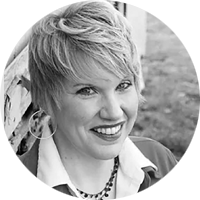
Nathaniel Shippee
University of Illinois
Chicago, Illinois

Samuel Weaver
St. John’s College
Annapolis, Maryland

Patrick Mayles
Graduate student
Universidad Nacional de Colombia

Christina Jeong
College Student
University of Notre Dame
Notre Dame, Indiana

Improve Your Writing Skills
Other than endorsing perfect punctuation and grammar in English, the Ayn Rand Institute offers no advice or feedback for essays submitted to its contests. However, we do recommend the following resources as ways to improve the content of your essays.
The Atlas Project
Writing: a mini-course.
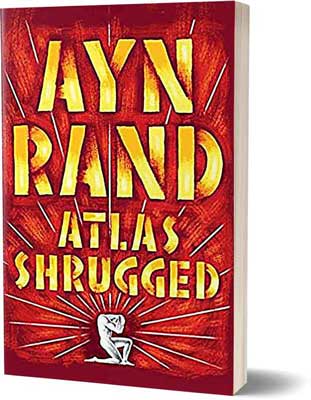
Sign Up for Contest Updates!
Want to stay up-to-date on any new developments to the contest? Sign up to our email list below.
We’ll send you periodic reminders about the contest deadlines, as well as helpful resources to ensure you get the most out of your experience reading and writing about Ayn Rand’s Atlas Shrugged .
Great! Let's get you a copy of the book.
Atlas Shrugged is a mystery novel like no other. You enter a world where scientists, entrepreneurs, artists, and inventors are inexplicably vanishing—where the world is crumbling.
What you discover, by the end, is an uplifting vision of life, an inspiring cast of heroes, and a challenging new way to think about life’s most important issues.
You're almost there!
Enter your school details below to receive a free digital copy of Atlas Shrugged .
Let's log you in to your account.
Success! Let's log you in to your account.
We've received your request for a free copy of Atlas Shrugged and will be emailing you details on how you can access it shortly. In the meantime, are you ready to begin the entry process?
Please enter your password below, either to create a new account or to sign in to your existing account for the contest. Once you're logged in to your account, you'll be able to save your entry progress and return later to complete it.
Hi, . Ready to enter the contest?
Now that you've logged in to your account, let's get you started on your entry for the contest. It's OK if you haven't finished reading the book or writing your essay yet. We'll save your progress for you to continue later.
Then, when you're ready to submit your essay, just return to our platform. Your saved entry will be right where you left off. So, why wait? Take the first step, and start your entry today.

- Privacy Policy
- Terms & Conditions
- Ayn Rand Global
- Ayn Rand Institute eStore
- Ayn Rand University App
Updates From ARI
Copyright © 1985 – 2024 The Ayn Rand Institute (ARI). Reproduction of content and images in whole or in part is prohibited. All rights reserved. ARI is a 501(c)(3) nonprofit organization. Contributions to ARI in the United States are tax-exempt to the extent provided by law. Objectivist Conferences (OCON), Ayn Rand Conference (ARC), Ayn Rand University (ARU) and the Ayn Rand Institute eStore are operated by ARI. Payments to OCON, ARC, ARU or the Ayn Rand Institute eStore do not qualify as tax-deductible contributions to the Ayn Rand Institute. AYN RAND, AYN RAND INSTITUTE, ARI, AYN RAND UNIVERSITY and the AYN RAND device are trademarks of the Ayn Rand Institute. All rights reserved.
Should college essays touch on race? Some feel the affirmative action ruling leaves them no choice
CHICAGO — When she started writing her college essay, Hillary Amofa told the story she thought admissions offices wanted to hear. About being the daughter of immigrants from Ghana and growing up in a small apartment in Chicago. About hardship and struggle.
Then she deleted it all.
“I would just find myself kind of trauma-dumping,” said the 18-year-old senior at Lincoln Park High School in Chicago. “And I’m just like, this doesn’t really say anything about me as a person.”
When the Supreme Court ended affirmative action in higher education, it left the college essay as one of few places where race can play a role in admissions decisions. For many students of color, instantly more was riding on the already high-stakes writing assignment. Some say they felt pressure to exploit their hardships as they competed for a spot on campus.
Amofa was just starting to think about her essay when the court issued its decision, and it left her with a wave of questions. Could she still write about her race? Could she be penalized for it? She wanted to tell colleges about her heritage but she didn’t want to be defined by it.
In English class, Amofa and her classmates read sample essays that all seemed to focus on some trauma or hardship. It left her with the impression she had to write about her life’s hardest moments to show how far she’d come. But she and some of her classmates wondered if their lives had been hard enough to catch the attention of admissions offices.
“For a lot of students, there’s a feeling of, like, having to go through something so horrible to feel worthy of going to school, which is kind of sad,” said Amofa, the daughter of a hospital technician and an Uber driver.
This year’s senior class is the first in decades to navigate college admissions without affirmative action . The Supreme Court upheld the practice in decisions going back to the 1970s, but this court’s conservative supermajority found it is unconstitutional for colleges to give students extra weight because of their race alone.
Still, the decision left room for race to play an indirect role: Chief Justice John Roberts wrote universities can still consider how an applicant’s life was shaped by their race, “so long as that discussion is concretely tied to a quality of character or unique ability.”
“A benefit to a student who overcame racial discrimination, for example, must be tied to that student’s courage and determination,” he wrote.
Scores of colleges responded with new essay prompts asking about students’ backgrounds. Brown University asked applicants how “an aspect of your growing up has inspired or challenged you.” Rice University asked students how their perspectives were shaped by their “background, experiences, upbringing, and/or racial identity.”
WONDERING IF SCHOOLS 'EXPECT A SOB STORY'
When Darrian Merritt started writing his essay, he knew the stakes were higher than ever because of the court’s decision. His first instinct was to write about events that led to him going to live with his grandmother as a child.
Those were painful memories, but he thought they might play well at schools like Yale, Stanford and Vanderbilt.
“I feel like the admissions committee might expect a sob story or a tragic story,” said Merritt, a senior in Cleveland. “And if you don’t provide that, then maybe they’re not going to feel like you went through enough to deserve having a spot at the university. I wrestled with that a lot.”
He wrote drafts focusing on his childhood, but it never amounted to more than a collection of memories. Eventually he abandoned the idea and aimed for an essay that would stand out for its positivity.
Merritt wrote about a summer camp where he started to feel more comfortable in his own skin. He described embracing his personality and defying his tendency to please others. The essay had humor — it centered on a water gun fight where he had victory in sight but, in a comedic twist, slipped and fell. But the essay also reflects on his feelings of not being “Black enough” and getting made fun of for listening to “white people music.”
“I was like, ‘OK, I’m going to write this for me, and we’re just going to see how it goes,’” he said. “It just felt real, and it felt like an honest story.”
The essay describes a breakthrough as he learned “to take ownership of myself and my future by sharing my true personality with the people I encounter. ... I realized that the first chapter of my own story had just been written.”
A RULING PROMPTS PIVOTS ON ESSAY TOPICS
Like many students, Max Decker of Portland, Oregon, had drafted a college essay on one topic, only to change direction after the Supreme Court ruling in June.
Decker initially wrote about his love for video games. In a childhood surrounded by constant change, navigating his parents’ divorce, the games he took from place to place on his Nintendo DS were a source of comfort.
But the essay he submitted to colleges focused on the community he found through Word is Bond, a leadership group for young Black men in Portland.
As the only biracial, Jewish kid with divorced parents in a predominantly white, Christian community, Decker wrote he constantly felt like the odd one out. On a trip with Word is Bond to Capitol Hill, he and friends who looked just like him shook hands with lawmakers. The experience, he wrote, changed how he saw himself.
“It’s because I’m different that I provide something precious to the world, not the other way around,” he wrote.
As a first-generation college student, Decker thought about the subtle ways his peers seemed to know more about navigating the admissions process . They made sure to get into advanced classes at the start of high school, and they knew how to secure glowing letters of recommendation.
If writing about race would give him a slight edge and show admissions officers a fuller picture of his achievements, he wanted to take that small advantage.
His first memory about race, Decker said, was when he went to get a haircut in elementary school and the barber made rude comments about his curly hair. Until recently, the insecurity that moment created led him to keep his hair buzzed short.
Through Word is Bond, Decker said he found a space to explore his identity as a Black man. It was one of the first times he was surrounded by Black peers and saw Black role models. It filled him with a sense of pride in his identity. No more buzzcut.
The pressure to write about race involved a tradeoff with other important things in his life, Decker said. That included his passion for journalism, like the piece he wrote on efforts to revive a once-thriving Black neighborhood in Portland. In the end, he squeezed in 100 characters about his journalism under the application’s activities section.
“My final essay, it felt true to myself. But the difference between that and my other essay was the fact that it wasn’t the truth that I necessarily wanted to share,” said Decker, whose top college choice is Tulane, in New Orleans, because of the region’s diversity. “It felt like I just had to limit the truth I was sharing to what I feel like the world is expecting of me.”
SPELLING OUT THE IMPACT OF RACE
Before the Supreme Court ruling, it seemed a given to Imani Laird that colleges would consider the ways that race had touched her life. But now, she felt like she had to spell it out.
As she started her essay, she reflected on how she had faced bias or felt overlooked as a Black student in predominantly white spaces.
There was the year in math class when the teacher kept calling her by the name of another Black student. There were the comments that she’d have an easier time getting into college because she was Black .
“I didn’t have it easier because of my race,” said Laird, a senior at Newton South High School in the Boston suburbs who was accepted at Wellesley and Howard University, and is waiting to hear from several Ivy League colleges. “I had stuff I had to overcome.”
In her final essays, she wrote about her grandfather, who served in the military but was denied access to GI Bill benefits because of his race.
She described how discrimination fueled her ambition to excel and pursue a career in public policy.
“So, I never settled for mediocrity,” she wrote. “Regardless of the subject, my goal in class was not just to participate but to excel. Beyond academics, I wanted to excel while remembering what started this motivation in the first place.”
WILL SCHOOLS LOSE RACIAL DIVERSITY?
Amofa used to think affirmative action was only a factor at schools like Harvard and Yale. After the court’s ruling, she was surprised to find that race was taken into account even at some public universities she was applying to.
Now, without affirmative action, she wondered if mostly white schools will become even whiter.
It’s been on her mind as she chooses between Indiana University and the University of Dayton, both of which have relatively few Black students. When she was one of the only Black students in her grade school, she could fall back on her family and Ghanaian friends at church. At college, she worries about loneliness.
“That’s what I’m nervous about,” she said. “Going and just feeling so isolated, even though I’m constantly around people.”
The first drafts of her essay focused on growing up in a low-income family, sharing a bedroom with her brother and grandmother. But it didn’t tell colleges about who she is now, she said.
Her final essay tells how she came to embrace her natural hair . She wrote about going to a mostly white grade school where classmates made jokes about her afro. When her grandmother sent her back with braids or cornrows, they made fun of those too.
Over time, she ignored their insults and found beauty in the styles worn by women in her life. She now runs a business doing braids and other hairstyles in her neighborhood.
“I stopped seeing myself through the lens of the European traditional beauty standards and started seeing myself through the lens that I created,” Amofa wrote.
“Criticism will persist, but it loses its power when you know there’s a crown on your head!”
Ma reported from Portland, Oregon.
The Associated Press’ education coverage receives financial support from multiple private foundations. AP is solely responsible for all content. Find AP’s standards for working with philanthropies, a list of supporters and funded coverage areas at AP.org .

- Election 2024
- Entertainment
- Newsletters
- Photography
- Personal Finance
- AP Buyline Personal Finance
- Press Releases
- Israel-Hamas War
- Russia-Ukraine War
- Global elections
- Asia Pacific
- Latin America
- Middle East
- March Madness
- AP Top 25 Poll
- Movie reviews
- Book reviews
- Personal finance
- Financial Markets
- Business Highlights
- Financial wellness
- Artificial Intelligence
- Social Media
Should college essays touch on race? Some feel the affirmative action ruling leaves them no choice
Hillary Amofa listens to others member of the Lincoln Park High School step team after school Friday, March 8, 2024, in Chicago. (AP Photo/Charles Rex Arbogast)

When the Supreme Court ended affirmative action, it left the college essay as one of few places where race can play a role in admissions decisions. (AP Video: Noreen Nasir)
Hillary Amofa listens to others member of the Lincoln Park High School step team after school Friday, March 8, 2024, in Chicago. When she started writing her college essay, Amofa told the story she thought admissions offices wanted to hear. She wrote about being the daughter of immigrants from Ghana, about growing up in a small apartment in Chicago. She described hardship and struggle. Then she deleted it all. “I would just find myself kind of trauma-dumping,” said the 18 year-old senior, “And I’m just like, this doesn’t really say anything about me as a person.” (AP Photo/Charles Rex Arbogast)
- Copy Link copied
Hillary Amofa, laughs as she participates in a team building game with members of the Lincoln Park High School step team after school Friday, March 8, 2024, in Chicago. When she started writing her college essay, Amofa told the story she thought admissions offices wanted to hear. She wrote about being the daughter of immigrants from Ghana, about growing up in a small apartment in Chicago. She described hardship and struggle. Then she deleted it all. “I would just find myself kind of trauma-dumping,” said the 18 year-old senior, “And I’m just like, this doesn’t really say anything about me as a person.” (AP Photo/Charles Rex Arbogast)
Hillary Amofa stands for a portrait after practice with members of the Lincoln Park High School step team Friday, March 8, 2024, in Chicago. When she started writing her college essay, Amofa told the story she thought admissions offices wanted to hear. She wrote about being the daughter of immigrants from Ghana, about growing up in a small apartment in Chicago. She described hardship and struggle. Then she deleted it all. “I would just find myself kind of trauma-dumping,” said the 18 year-old senior, “And I’m just like, this doesn’t really say anything about me as a person.” (AP Photo/Charles Rex Arbogast)
Max Decker, a senior at Lincoln High School, sits for a portrait in the school library where he often worked on writing his college essays, in Portland, Ore., Wednesday, March 20, 2024. (AP Photo/Amanda Loman)
Hillary Amofa stands for a portrait after practice with members of the Lincoln Park High School step team Friday, March 8, 2024, in Chicago. When she started writing her college essay, Amofa told the story she thought admissions offices wanted to hear. She wrote about being the daughter of immigrants from Ghana, about growing up in a small apartment in Chicago. (AP Photo/Charles Rex Arbogast)
Hillary Amofa, second from left, practices with members of the Lincoln Park High School step team after school Friday, March 8, 2024, in Chicago. When she started writing her college essay, Amofa told the story she thought admissions offices wanted to hear. She wrote about being the daughter of immigrants from Ghana, about growing up in a small apartment in Chicago. She described hardship and struggle. Then she deleted it all. “I would just find myself kind of trauma-dumping,” said the 18 year-old senior, “And I’m just like, this doesn’t really say anything about me as a person.” (AP Photo/Charles Rex Arbogast)
Max Decker, a senior at Lincoln High School, stands for a portrait outside of the school in Portland, Ore., Wednesday, March 20, 2024. (AP Photo/Amanda Loman)
*Hillary Amofa, reflected right, practices in a mirror with members of the Lincoln Park High School step team after school Friday, March 8, 2024, in Chicago. When she started writing her college essay, Amofa told the story she thought admissions offices wanted to hear. She wrote about being the daughter of immigrants from Ghana, about growing up in a small apartment in Chicago. She described hardship and struggle. Then she deleted it all. “I would just find myself kind of trauma-dumping,” said the 18 year-old senior, “And I’m just like, this doesn’t really say anything about me as a person.” (AP Photo/Charles Rex Arbogast)
Max Decker, a senior at Lincoln High School, sits for a portrait outside of the school in Portland, Ore., Wednesday, March 20, 2024. (AP Photo/Amanda Loman)
Hillary Amofa, left, practices with members of the Lincoln Park High School step team after school Friday, March 8, 2024, in Chicago. When she started writing her college essay, Amofa told the story she thought admissions offices wanted to hear. She wrote about being the daughter of immigrants from Ghana, about growing up in a small apartment in Chicago. She described hardship and struggle. Then she deleted it all. “I would just find myself kind of trauma-dumping,” said the 18 year-old senior, “And I’m just like, this doesn’t really say anything about me as a person.” (AP Photo/Charles Rex Arbogast)
Hillary Amofa sits for a portrait after her step team practice at Lincoln Park High School Friday, March 8, 2024, in Chicago. When she started writing her college essay, Amofa told the story she thought admissions offices wanted to hear. She wrote about being the daughter of immigrants from Ghana, about growing up in a small apartment in Chicago. She described hardship and struggle. Then she deleted it all. “I would just find myself kind of trauma-dumping,” said the 18 year-old senior, “And I’m just like, this doesn’t really say anything about me as a person.” (AP Photo/Charles Rex Arbogast)
FILE - Demonstrators protest outside of the Supreme Court in Washington, in this June 29, 2023 file photo, after the Supreme Court struck down affirmative action in college admissions, saying race cannot be a factor. (AP Photo/Jose Luis Magana)
CHICAGO (AP) — When she started writing her college essay, Hillary Amofa told the story she thought admissions offices wanted to hear. About being the daughter of immigrants from Ghana and growing up in a small apartment in Chicago. About hardship and struggle.
Then she deleted it all.
“I would just find myself kind of trauma-dumping,” said the 18-year-old senior at Lincoln Park High School in Chicago. “And I’m just like, this doesn’t really say anything about me as a person.”
When the Supreme Court ended affirmative action in higher education, it left the college essay as one of few places where race can play a role in admissions decisions. For many students of color, instantly more was riding on the already high-stakes writing assignment. Some say they felt pressure to exploit their hardships as they competed for a spot on campus.
Amofa was just starting to think about her essay when the court issued its decision, and it left her with a wave of questions. Could she still write about her race? Could she be penalized for it? She wanted to tell colleges about her heritage but she didn’t want to be defined by it.
In English class, Amofa and her classmates read sample essays that all seemed to focus on some trauma or hardship. It left her with the impression she had to write about her life’s hardest moments to show how far she’d come. But she and some of her classmates wondered if their lives had been hard enough to catch the attention of admissions offices.
“For a lot of students, there’s a feeling of, like, having to go through something so horrible to feel worthy of going to school, which is kind of sad,” said Amofa, the daughter of a hospital technician and an Uber driver.
This year’s senior class is the first in decades to navigate college admissions without affirmative action . The Supreme Court upheld the practice in decisions going back to the 1970s, but this court’s conservative supermajority found it is unconstitutional for colleges to give students extra weight because of their race alone.
Still, the decision left room for race to play an indirect role: Chief Justice John Roberts wrote universities can still consider how an applicant’s life was shaped by their race, “so long as that discussion is concretely tied to a quality of character or unique ability.”
“A benefit to a student who overcame racial discrimination, for example, must be tied to that student’s courage and determination,” he wrote.
Scores of colleges responded with new essay prompts asking about students’ backgrounds. Brown University asked applicants how “an aspect of your growing up has inspired or challenged you.” Rice University asked students how their perspectives were shaped by their “background, experiences, upbringing, and/or racial identity.”
Hillary Amofa, reflected right, practices in a mirror with members of the Lincoln Park High School step team after school, March 8, 2024, in Chicago. (AP Photo/Charles Rex Arbogast)
WONDERING IF SCHOOLS ‘EXPECT A SOB STORY’
When Darrian Merritt started writing his essay, he knew the stakes were higher than ever because of the court’s decision. His first instinct was to write about events that led to him going to live with his grandmother as a child.
Those were painful memories, but he thought they might play well at schools like Yale, Stanford and Vanderbilt.
“I feel like the admissions committee might expect a sob story or a tragic story,” said Merritt, a senior in Cleveland. “And if you don’t provide that, then maybe they’re not going to feel like you went through enough to deserve having a spot at the university. I wrestled with that a lot.”
He wrote drafts focusing on his childhood, but it never amounted to more than a collection of memories. Eventually he abandoned the idea and aimed for an essay that would stand out for its positivity.
Merritt wrote about a summer camp where he started to feel more comfortable in his own skin. He described embracing his personality and defying his tendency to please others. The essay had humor — it centered on a water gun fight where he had victory in sight but, in a comedic twist, slipped and fell. But the essay also reflects on his feelings of not being “Black enough” and getting made fun of for listening to “white people music.”
“I was like, ‘OK, I’m going to write this for me, and we’re just going to see how it goes,’” he said. “It just felt real, and it felt like an honest story.”
The essay describes a breakthrough as he learned “to take ownership of myself and my future by sharing my true personality with the people I encounter. ... I realized that the first chapter of my own story had just been written.”
Max Decker, a senior at Lincoln High School, sits for a portrait in the school library where he often worked on writing his college essays, in Portland, Ore., March 20, 2024. (AP Photo/Amanda Loman)
A RULING PROMPTS PIVOTS ON ESSAY TOPICS
Like many students, Max Decker of Portland, Oregon, had drafted a college essay on one topic, only to change direction after the Supreme Court ruling in June.
Decker initially wrote about his love for video games. In a childhood surrounded by constant change, navigating his parents’ divorce, the games he took from place to place on his Nintendo DS were a source of comfort.
But the essay he submitted to colleges focused on the community he found through Word is Bond, a leadership group for young Black men in Portland.
As the only biracial, Jewish kid with divorced parents in a predominantly white, Christian community, Decker wrote he constantly felt like the odd one out. On a trip with Word is Bond to Capitol Hill, he and friends who looked just like him shook hands with lawmakers. The experience, he wrote, changed how he saw himself.
“It’s because I’m different that I provide something precious to the world, not the other way around,” he wrote.
As a first-generation college student, Decker thought about the subtle ways his peers seemed to know more about navigating the admissions process . They made sure to get into advanced classes at the start of high school, and they knew how to secure glowing letters of recommendation.
Max Decker reads his college essay on his experience with a leadership group for young Black men. (AP Video/Noreen Nasir)
If writing about race would give him a slight edge and show admissions officers a fuller picture of his achievements, he wanted to take that small advantage.
His first memory about race, Decker said, was when he went to get a haircut in elementary school and the barber made rude comments about his curly hair. Until recently, the insecurity that moment created led him to keep his hair buzzed short.
Through Word is Bond, Decker said he found a space to explore his identity as a Black man. It was one of the first times he was surrounded by Black peers and saw Black role models. It filled him with a sense of pride in his identity. No more buzzcut.
The pressure to write about race involved a tradeoff with other important things in his life, Decker said. That included his passion for journalism, like the piece he wrote on efforts to revive a once-thriving Black neighborhood in Portland. In the end, he squeezed in 100 characters about his journalism under the application’s activities section.
“My final essay, it felt true to myself. But the difference between that and my other essay was the fact that it wasn’t the truth that I necessarily wanted to share,” said Decker, whose top college choice is Tulane, in New Orleans, because of the region’s diversity. “It felt like I just had to limit the truth I was sharing to what I feel like the world is expecting of me.”
Demonstrators protest outside of the Supreme Court in Washington, in this June 29, 2023 file photo, after the Supreme Court struck down affirmative action in college admissions, saying race cannot be a factor. (AP Photo/Jose Luis Magana)
SPELLING OUT THE IMPACT OF RACE
Before the Supreme Court ruling, it seemed a given to Imani Laird that colleges would consider the ways that race had touched her life. But now, she felt like she had to spell it out.
As she started her essay, she reflected on how she had faced bias or felt overlooked as a Black student in predominantly white spaces.
There was the year in math class when the teacher kept calling her by the name of another Black student. There were the comments that she’d have an easier time getting into college because she was Black .
“I didn’t have it easier because of my race,” said Laird, a senior at Newton South High School in the Boston suburbs who was accepted at Wellesley and Howard University, and is waiting to hear from several Ivy League colleges. “I had stuff I had to overcome.”
In her final essays, she wrote about her grandfather, who served in the military but was denied access to GI Bill benefits because of his race.
She described how discrimination fueled her ambition to excel and pursue a career in public policy.
“So, I never settled for mediocrity,” she wrote. “Regardless of the subject, my goal in class was not just to participate but to excel. Beyond academics, I wanted to excel while remembering what started this motivation in the first place.”
Hillary Amofa stands for a portrait after practice with members of the Lincoln Park High School step team, March 8, 2024, in Chicago. (AP Photo/Charles Rex Arbogast)
WILL SCHOOLS LOSE RACIAL DIVERSITY?
Amofa used to think affirmative action was only a factor at schools like Harvard and Yale. After the court’s ruling, she was surprised to find that race was taken into account even at some public universities she was applying to.
Now, without affirmative action, she wondered if mostly white schools will become even whiter.
It’s been on her mind as she chooses between Indiana University and the University of Dayton, both of which have relatively few Black students. When she was one of the only Black students in her grade school, she could fall back on her family and Ghanaian friends at church. At college, she worries about loneliness.
“That’s what I’m nervous about,” she said. “Going and just feeling so isolated, even though I’m constantly around people.”
Hillary Amofa reads her college essay on embracing her natural hair. (AP Video/Noreen Nasir)
The first drafts of her essay focused on growing up in a low-income family, sharing a bedroom with her brother and grandmother. But it didn’t tell colleges about who she is now, she said.
Her final essay tells how she came to embrace her natural hair . She wrote about going to a mostly white grade school where classmates made jokes about her afro. When her grandmother sent her back with braids or cornrows, they made fun of those too.
Over time, she ignored their insults and found beauty in the styles worn by women in her life. She now runs a business doing braids and other hairstyles in her neighborhood.
“I stopped seeing myself through the lens of the European traditional beauty standards and started seeing myself through the lens that I created,” Amofa wrote.
“Criticism will persist, but it loses its power when you know there’s a crown on your head!”
Ma reported from Portland, Oregon.
The Associated Press’ education coverage receives financial support from multiple private foundations. AP is solely responsible for all content. Find AP’s standards for working with philanthropies, a list of supporters and funded coverage areas at AP.org .

- Share full article
Advertisement
Supported by
Guest Essay
Elite College Admissions Have Turned Students Into Brands

By Sarah Bernstein
Ms. Bernstein is a playwright, a writing coach and an essayist in Brooklyn.
“I just can’t think of anything,” my student said.
After 10 years of teaching college essay writing, I was familiar with this reply. For some reason, when you’re asked to recount an important experience from your life, it is common to forget everything that has ever happened to you. It’s a long-form version of the anxiety that takes hold at a corporate retreat when you’re invited to say “one interesting thing about yourself,” and you suddenly believe that you are the most boring person in the entire world. Once during a version of this icebreaker, a man volunteered that he had only one kidney, and I remember feeling incredibly jealous of him.
I tried to jog this student’s memory. What about his love of music? Or his experience learning English? Or that time on a summer camping trip when he and his friends had nearly drowned? “I don’t know,” he said with a sigh. “That all seems kind of cliché.”
Applying to college has always been about standing out. When I teach college essay workshops and coach applicants one on one, I see my role as helping students to capture their voice and their way of processing the world, things that are, by definition, unique to each individual. Still, many of my students (and their parents) worry that as getting into college becomes increasingly competitive, this won’t be enough to set them apart.
Their anxiety is understandable. On Thursday, in a tradition known as “Ivy Day,” all eight Ivy League schools released their regular admission decisions. Top colleges often issue statements about how impressive (and competitive) their applicant pools were this cycle. The intention is to flatter accepted students and assuage rejected ones, but for those who have not yet applied to college, these statements reinforce the fear that there is an ever-expanding cohort of applicants with straight A’s and perfect SATs and harrowing camping trip stories all competing with one another for a vanishingly small number of spots.
This scarcity has led to a boom in the college consulting industry, now estimated to be a $2.9 billion business. In recent years, many of these advisers and companies have begun to promote the idea of personal branding — a way for teenagers to distinguish themselves by becoming as clear and memorable as a good tagline.
While this approach often leads to a strong application, students who brand themselves too early or too definitively risk missing out on the kind of exploration that will prepare them for adult life.
Like a corporate brand, the personal brand is meant to distill everything you stand for (honesty, integrity, high quality, low prices) into a cohesive identity that can be grasped at a glance. On its website, a college prep and advising company called Dallas Admissions explains the benefits of branding this way: “Each person is complex, yet admissions officers only have a small amount of time to spend learning about each prospective student. The smart student boils down key aspects of himself or herself into their personal ‘brand’ and sells that to the college admissions officer.”
Identifying the key aspects of yourself may seem like a lifelong project, but unfortunately, college applicants don’t have that kind of time. Online, there are dozens of lesson plans and seminars promising to walk students through the process of branding themselves in five to 10 easy steps. The majority begin with questions I would have found panic-inducing as a teenager, such as, “What is the story you want people to tell about you when you’re not in the room?”
Where I hoped others would describe me as “normal” or, in my wildest dreams, “cool,” today’s teenagers are expected to leave this exercise with labels like, Committed Athlete and Compassionate Leader or Environmentally Conscious Musician. Once students have a draft of their ideal self, they’re offered instructions for manifesting it (or at least, the appearance of it) in person and online. These range from common-sense tips (not posting illegal activity on social media) to more drastic recommendations (getting different friends).
It’s not just that these courses cut corners on self-discovery; it’s that they get the process backward. A personal brand is effective only if you can support it with action, so instead of finding their passion and values through experience, students are encouraged to select a passion as early as possible and then rack up the experience to substantiate it. Many college consultants suggest beginning to align your activities with your college ambitions by ninth grade, while the National Institute of Certified College Planners recommends students “talk with parents, guardians, and/or an academic adviser to create a clear plan for your education and career-related goals” in junior high.
The idea of a group of middle schoolers soberly mapping out their careers is both comical and depressing, but when I read student essays today, I can see that this advice is getting through. Over the past few years, I have been struck by how many high school seniors already have defined career goals as well as a C.V. of relevant extracurriculars to go with them. This widens the gap between wealthy students and those who lack the resources to secure a fancy research gig or start their own small business. (A shocking number of college applicants claim to have started a small business.) It also puts pressure on all students to define themselves at a moment when they are anxious to fit in and yet changing all the time.
In the world of branding, a word that appears again and again is “consistency.” If you are Charmin, that makes sense. People opening a roll of toilet paper do not want to be surprised. If you are a teenage human being, however, that is an unreasonable expectation. Changing one’s interests, opinions and presentation is a natural part of adolescence and an instructive one. I find that my students with scattershot résumés are often the most confident. They’re not afraid to push back against suggestions that ring false and will insist on revising their essay until it actually “feels like me.” On the other hand, many of my most accomplished students are so quick to accept feedback that I am wary of offering it, lest I become one more adult trying to shape them into an admission-worthy ideal.
I understand that for parents, prioritizing exploration can feel like a risky bet. Self-insight is hard to quantify and to communicate in a college application. When it comes to building a life, however, this kind of knowledge has more value than any accolade, and it cannot be generated through a brainstorming exercise in a six-step personal branding course online. To equip kids for the world, we need to provide them not just with opportunities for achievement, but with opportunities to fail, to learn, to wander and to change their minds.
In some ways, the college essay is a microcosm of modern adolescence. Depending on how you look at it, it’s either a forum for self-discovery or a high-stakes test you need to ace. I try to assure my students that it is the former. I tell them that it’s a chance to take stock of everything you’ve experienced and learned over the past 18 years and everything you have to offer as a result.
That can be a profound process. But to embark on it, students have to believe that colleges really want to see the person behind the brand. And they have to have the chance to know who that person is.
Sarah Bernstein is a playwright, a writing coach and an essayist.
The Times is committed to publishing a diversity of letters to the editor. We’d like to hear what you think about this or any of our articles. Here are some tips . And here’s our email: [email protected] .
Follow the New York Times Opinion section on Facebook , Instagram , TikTok , WhatsApp , X and Threads .
The War at Stanford
I didn’t know that college would be a factory of unreason.

Listen to this article
Produced by ElevenLabs and News Over Audio (NOA) using AI narration.
This article was featured in the One Story to Read Today newsletter. Sign up for it here .
ne of the section leaders for my computer-science class, Hamza El Boudali, believes that President Joe Biden should be killed. “I’m not calling for a civilian to do it, but I think a military should,” the 23-year-old Stanford University student told a small group of protesters last month. “I’d be happy if Biden was dead.” He thinks that Stanford is complicit in what he calls the genocide of Palestinians, and that Biden is not only complicit but responsible for it. “I’m not calling for a vigilante to do it,” he later clarified, “but I’m saying he is guilty of mass murder and should be treated in the same way that a terrorist with darker skin would be (and we all know terrorists with dark skin are typically bombed and drone striked by American planes).” El Boudali has also said that he believes that Hamas’s October 7 attack was a justifiable act of resistance, and that he would actually prefer Hamas rule America in place of its current government (though he clarified later that he “doesn’t mean Hamas is perfect”). When you ask him what his cause is, he answers: “Peace.”
I switched to a different computer-science section.
Israel is 7,500 miles away from Stanford’s campus, where I am a sophomore. But the Hamas invasion and the Israeli counterinvasion have fractured my university, a place typically less focused on geopolitics than on venture-capital funding for the latest dorm-based tech start-up. Few students would call for Biden’s head—I think—but many of the same young people who say they want peace in Gaza don’t seem to realize that they are in fact advocating for violence. Extremism has swept through classrooms and dorms, and it is becoming normal for students to be harassed and intimidated for their faith, heritage, or appearance—they have been called perpetrators of genocide for wearing kippahs, and accused of supporting terrorism for wearing keffiyehs. The extremism and anti-Semitism at Ivy League universities on the East Coast have attracted so much media and congressional attention that two Ivy presidents have lost their jobs. But few people seem to have noticed the culture war that has taken over our California campus.
For four months, two rival groups of protesters, separated by a narrow bike path, faced off on Stanford’s palm-covered grounds. The “Sit-In to Stop Genocide” encampment was erected by students in mid-October, even before Israeli troops had crossed into Gaza, to demand that the university divest from Israel and condemn its behavior. Posters were hung equating Hamas with Ukraine and Nelson Mandela. Across from the sit-in, a rival group of pro-Israel students eventually set up the “Blue and White Tent” to provide, as one activist put it, a “safe space” to “be a proud Jew on campus.” Soon it became the center of its own cluster of tents, with photos of Hamas’s victims sitting opposite the rubble-ridden images of Gaza and a long (and incomplete) list of the names of slain Palestinians displayed by the students at the sit-in.
Some days the dueling encampments would host only a few people each, but on a sunny weekday afternoon, there could be dozens. Most of the time, the groups tolerated each other. But not always. Students on both sides were reportedly spit on and yelled at, and had their belongings destroyed. (The perpetrators in many cases seemed to be adults who weren’t affiliated with Stanford, a security guard told me.) The university put in place round-the-clock security, but when something actually happened, no one quite knew what to do.
Conor Friedersdorf: How October 7 changed America’s free speech culture
Stanford has a policy barring overnight camping, but for months didn’t enforce it, “out of a desire to support the peaceful expression of free speech in the ways that students choose to exercise that expression”—and, the administration told alumni, because the university feared that confronting the students would only make the conflict worse. When the school finally said the tents had to go last month, enormous protests against the university administration, and against Israel, followed.
“We don’t want no two states! We want all of ’48!” students chanted, a slogan advocating that Israel be dismantled and replaced by a single Arab nation. Palestinian flags flew alongside bright “Welcome!” banners left over from new-student orientation. A young woman gave a speech that seemed to capture the sense of urgency and power that so many students here feel. “We are Stanford University!” she shouted. “We control things!”
“W e’ve had protests in the past,” Richard Saller, the university’s interim president, told me in November—about the environment, and apartheid, and Vietnam. But they didn’t pit “students against each other” the way that this conflict has.
I’ve spoken with Saller, a scholar of Roman history, a few times over the past six months in my capacity as a student journalist. We first met in September, a few weeks into his tenure. His predecessor, Marc Tessier-Lavigne, had resigned as president after my reporting for The Stanford Daily exposed misconduct in his academic research. (Tessier-Lavigne had failed to retract papers with faked data over the course of 20 years. In his resignation statement , he denied allegations of fraud and misconduct; a Stanford investigation determined that he had not personally manipulated data or ordered any manipulation but that he had repeatedly “failed to decisively and forthrightly correct mistakes” from his lab.)
In that first conversation, Saller told me that everyone was “eager to move on” from the Tessier-Lavigne scandal. He was cheerful and upbeat. He knew he wasn’t staying in the job long; he hadn’t even bothered to move into the recently vacated presidential manor. In any case, campus, at that time, was serene. Then, a week later, came October 7.
The attack was as clear a litmus test as one could imagine for the Middle East conflict. Hamas insurgents raided homes and a music festival with the goal of slaughtering as many civilians as possible. Some victims were raped and mutilated, several independent investigations found. Hundreds of hostages were taken into Gaza and many have been tortured.
This, of course, was bad. Saying this was bad does not negate or marginalize the abuses and suffering Palestinians have experienced in Gaza and elsewhere. Everyone, of every ideology, should be able to say that this was bad. But much of this campus failed that simple test.
Two days after the deadliest massacre of Jews since the Holocaust, Stanford released milquetoast statements marking the “moment of intense emotion” and declaring “deep concern” over “the crisis in Israel and Palestine.” The official statements did not use the words Hamas or violence .
The absence of a clear institutional response led some teachers to take matters into their own hands. During a mandatory freshman seminar on October 10, a lecturer named Ameer Loggins tossed out his lesson plan to tell students that the actions of the Palestinian “military force” had been justified, that Israelis were colonizers, and that the Holocaust had been overemphasized, according to interviews I conducted with students in the class. Loggins then asked the Jewish students to identify themselves. He instructed one of them to “stand up, face the window, and he kind of kicked away his chair,” a witness told me. Loggins described this as an effort to demonstrate Israel’s treatment of Palestinians. (Loggins did not reply to a request for comment; a spokesperson for Stanford said that there were “different recollections of the details regarding what happened” in the class.)
“We’re only in our third week of college, and we’re afraid to be here,” three students in the class wrote in an email that night to administrators. “This isn’t what Stanford was supposed to be.” The class Loggins taught is called COLLEGE, short for “Civic, Liberal, and Global Education,” and it is billed as an effort to develop “the skills that empower and enable us to live together.”
Loggins was suspended from teaching duties and an investigation was opened; this angered pro-Palestine activists, who organized a petition that garnered more than 1,700 signatures contesting the suspension. A pamphlet from the petitioners argued that Loggins’s behavior had not been out of bounds.
The day after the class, Stanford put out a statement written by Saller and Jenny Martinez, the university provost, more forcefully condemning the Hamas attack. Immediately, this new statement generated backlash.
Pro-Palestine activists complained about it during an event held the same day, the first of several “teach-ins” about the conflict. Students gathered in one of Stanford’s dorms to “bear witness to the struggles of decolonization.” The grievances and pain shared by Palestinian students were real. They told of discrimination and violence, of frightened family members subjected to harsh conditions. But the most raucous reaction from the crowd was in response to a young woman who said, “You ask us, do we condemn Hamas? Fuck you!” She added that she was “so proud of my resistance.”
David Palumbo-Liu, a professor of comparative literature with a focus on postcolonial studies, also spoke at the teach-in, explaining to the crowd that “European settlers” had come to “replace” Palestine’s “native population.”
Palumbo-Liu is known as an intelligent and supportive professor, and is popular among students, who call him by his initials, DPL. I wanted to ask him about his involvement in the teach-in, so we met one day in a café a few hundred feet away from the tents. I asked if he could elaborate on what he’d said at the event about Palestine’s native population. He was happy to expand: This was “one of those discussions that could go on forever. Like, who is actually native? At what point does nativism lapse, right? Well, you haven’t been native for X number of years, so …” In the end, he said, “you have two people who both feel they have a claim to the land,” and “they have to live together. Both sides have to cede something.”
The struggle at Stanford, he told me, “is to find a way in which open discussions can be had that allow people to disagree.” It’s true that Stanford has utterly failed in its efforts to encourage productive dialogue. But I still found it hard to reconcile DPL’s words with his public statements on Israel, which he’d recently said on Facebook should be “the most hated nation in the world.” He also wrote: “When Zionists say they don’t feel ‘safe’ on campus, I’ve come to see that as they no longer feel immune to criticism of Israel.” He continued: “Well as the saying goes, get used to it.”
Z ionists, and indeed Jewish students of all political beliefs, have been given good reason to fear for their safety. They’ve been followed, harassed, and called derogatory racial epithets. At least one was told he was a “dirty Jew.” At least twice, mezuzahs have been ripped from students’ doors, and swastikas have been drawn in dorms. Arab and Muslim students also face alarming threats. The computer-science section leader, El Boudali, a pro-Palestine activist, told me he felt “safe personally,” but knew others who did not: “Some people have reported feeling like they’re followed, especially women who wear the hijab.”
In a remarkably short period of time, aggression and abuse have become commonplace, an accepted part of campus activism. In January, Jewish students organized an event dedicated to ameliorating anti-Semitism. It marked one of Saller’s first public appearances in the new year. Its topic seemed uncontroversial, and I thought it would generate little backlash.
Protests began before the panel discussion even started, with activists lining the stairs leading to the auditorium. During the event they drowned out the panelists, one of whom was Israel’s special envoy for combatting anti-Semitism, by demanding a cease-fire. After participants began cycling out into the dark, things got ugly.
Activists, their faces covered by keffiyehs or medical masks, confronted attendees. “Go back to Brooklyn!” a young woman shouted at Jewish students. One protester, who emerged as the leader of the group, said that she and her compatriots would “take all of your places and ensure Israel falls.” She told attendees to get “off our fucking campus” and launched into conspiracy theories about Jews being involved in “child trafficking.” As a rabbi tried to leave the event, protesters pursued him, chanting, “There is only one solution! Intifada revolution!”
At one point, some members of the group turned on a few Stanford employees, including another rabbi, an imam, and a chaplain, telling them, “We know your names and we know where you work.” The ringleader added: “And we’ll soon find out where you live.” The religious leaders formed a protective barrier in front of the Jewish students. The rabbi and the imam appeared to be crying.

S aller avoided the protest by leaving through another door. Early that morning, his private residence had been vandalized. Protesters frequently tell him he “can’t hide” and shout him down. “We charge you with genocide!” they chant, demanding that Stanford divest from Israel. (When asked whether Stanford actually invested in Israel, a spokesperson replied that, beyond small exposures from passive funds that track indexes such as the S&P 500, the university’s endowment “has no direct holdings in Israeli companies, or direct holdings in defense contractors.”)
When the university finally said the protest tents had to be removed, students responded by accusing Saller of suppressing their right to free speech. This is probably the last charge he expected to face. Saller once served as provost at the University of Chicago, which is known for holding itself to a position of strict institutional neutrality so that its students can freely explore ideas for themselves. Saller has a lifelong belief in First Amendment rights. But that conviction in impartial college governance does not align with Stanford’s behavior in recent years. Despite the fact that many students seemed largely uninterested in the headlines before this year, Stanford’s administrative leadership has often taken positions on political issues and events, such as the Paris climate conference and the murder of George Floyd. After Russia invaded Ukraine, Stanford’s Hoover Tower was lit up in blue and yellow, and the school released a statement in solidarity.
Thomas Chatterton Williams: Let the activists have their loathsome rallies
When we first met, a week before October 7, I asked Saller about this. Did Stanford have a moral duty to denounce the war in Ukraine, for example, or the ethnic cleansing of Uyghur Muslims in China? “On international political issues, no,” he said. “That’s not a responsibility for the university as a whole, as an institution.”
But when Saller tried to apply his convictions on neutrality for the first time as president, dozens of faculty members condemned the response, many pro-Israel alumni were outraged, donors had private discussions about pulling funding, and an Israeli university sent an open letter to Saller and Martinez saying, “Stanford’s administration has failed us.” The initial statement had tried to make clear that the school’s policy was not Israel-specific: It noted that the university would not take a position on the turmoil in Nagorno-Karabakh (where Armenians are undergoing ethnic cleansing) either. But the message didn’t get through.
Saller had to beat an awkward retreat or risk the exact sort of public humiliation that he, as caretaker president, had presumably been hired to avoid. He came up with a compromise that landed somewhere in the middle: an unequivocal condemnation of Hamas’s “intolerable atrocities” paired with a statement making clear that Stanford would commit to institutional neutrality going forward.
“The events in Israel and Gaza this week have affected and engaged large numbers of students on our campus in ways that many other events have not,” the statement read. “This is why we feel compelled to both address the impact of these events on our campus and to explain why our general policy of not issuing statements about news events not directly connected to campus has limited the breadth of our comments thus far, and why you should not expect frequent commentary from us in the future.”
I asked Saller why he had changed tack on Israel and not on Nagorno-Karabakh. “We don’t feel as if we should be making statements on every war crime and atrocity,” he told me. This felt like a statement in and of itself.
In making such decisions, Saller works closely with Martinez, Stanford’s provost. I happened to interview her, too, a few days before October 7, not long after she’d been appointed. When I asked about her hopes for the job, she said that a “priority is ensuring an environment in which free speech and academic freedom are preserved.”
We talked about the so-called Leonard Law—a provision unique to California that requires private universities to be governed by the same First Amendment protections as public ones. This restricts what Stanford can do in terms of penalizing speech, putting it in a stricter bind than Harvard, the University of Pennsylvania, or any of the other elite private institutions that have more latitude to set the standards for their campus (whether or not they have done so).
So I was surprised when, in December, the university announced that abstract calls for genocide “clearly violate Stanford’s Fundamental Standard, the code of conduct for all students at the university.” The statement was a response to the outrage following the congressional testimony of three university presidents—outrage that eventually led to the resignation of two of them, Harvard’s Claudine Gay and Penn’s Liz Magill. Gay and Magill, who had both previously held positions at Stanford, did not commit to punishing calls for the genocide of Jews.
Experts told me that Stanford’s policy is impossible to enforce—and Saller himself acknowledged as much in our March interview.
“Liz Magill is a good friend,” Saller told me, adding, “Having watched what happened at Harvard and Penn, it seemed prudent” to publicly state that Stanford rejected calls for genocide. But saying that those calls violate the code of conduct “is not the same thing as to say that we could actually punish it.”
Stanford’s leaders seem to be trying their best while adapting to the situation in real time. But the muddled messaging has created a policy of neutrality that does not feel neutral at all.
When we met back in November, I tried to get Saller to open up about his experience running an institution in turmoil. What’s it like to know that so many students seem to believe that he—a mild-mannered 71-year-old classicist who swing-dances with his anthropologist wife—is a warmonger? Saller was more candid than I expected—perhaps more candid than any prominent university president has been yet. We sat in the same conference room as we had in September. The weather hadn’t really changed. Yet I felt like I was sitting in front of a different person. He was hunched over and looked exhausted, and his voice broke when he talked about the loss of life in Gaza and Israel and “the fact that we’re caught up in it.” A capable administrator with decades of experience, Saller seemed almost at a loss. “It’s been a kind of roller coaster, to be honest.”
He said he hadn’t anticipated the deluge of the emails “blaming me for lack of moral courage.” Anything the university says seems bound to be wrong: “If I say that our position is that we grieve over the loss of innocent lives, that in itself will draw some hostile reactions.”
“I find that really difficult to navigate,” he said with a sigh.
By March, it seemed that his views had solidified. He said he knew he was “a target,” but he was not going to be pushed into issuing any more statements. The continuing crisis seems to have granted him new insight. “I am certain that whatever I say will not have any material effect on the war in Gaza.” It’s hard to argue with that.
P eople tend to blame the campus wars on two villains: dithering administrators and radical student activists. But colleges have always had dithering administrators and radical student activists. To my mind, it’s the average students who have changed.
Elite universities attract a certain kind of student: the overachieving striver who has won all the right accolades for all the right activities. Is it such a surprise that the kids who are trained in the constant pursuit of perfect scores think they have to look at the world like a series of multiple-choice questions, with clearly right or wrong answers? Or that they think they can gamify a political cause in the same way they ace a standardized test?
Everyone knows that the only reliable way to get into a school like Stanford is to be really good at looking really good. Now that they’re here, students know that one easy way to keep looking good is to side with the majority of protesters, and condemn Israel.
It’s not that there isn’t real anger and anxiety over what is happening in Gaza—there is, and justifiably so. I know that among the protesters are many people who are deeply connected to this issue. But they are not the majority. What really activates the crowds now seems less a principled devotion to Palestine or to pacifism than a desire for collective action, to fit in by embracing the fashionable cause of the moment—as if a centuries-old conflict in which both sides have stolen and killed could ever be a simple matter of right and wrong. In their haste to exhibit moral righteousness, many of the least informed protesters end up being the loudest and most uncompromising.
Today’s students grew up in the Trump era, in which violent rhetoric has become a normal part of political discourse and activism is as easy as reposting an infographic. Many young people have come to feel that being angry is enough to foment change. Furious at the world’s injustices and desperate for a simple way to express that fury, they don’t seem interested in any form of engagement more nuanced than backing a pure protagonist and denouncing an evil enemy. They don’t, always, seem that concerned with the truth.
At the protest last month to prevent the removal of the sit-in, an activist in a pink Women’s March “pussy hat” shouted that no rape was committed by Hamas on October 7. “There hasn’t been proof of these rape accusations,” a student told me in a separate conversation, criticizing the Blue and White Tent for spreading what he considered to be misinformation about sexual violence. (In March, a United Nations report found “reasonable grounds to believe that conflict-related sexual violence,” including “rape and gang rape,” occurred in multiple locations on October 7, as well as “clear and convincing information” on the “rape and sexualized torture” of hostages.) “The level of propaganda” surrounding Hamas, he told me, “is just unbelievable.”
The real story at Stanford is not about the malicious actors who endorse sexual assault and murder as forms of resistance, but about those who passively enable them because they believe their side can do no wrong. You don’t have to understand what you’re arguing for in order to argue for it. You don’t have to be able to name the river or the sea under discussion to chant “From the river to the sea.” This kind of obliviousness explains how one of my friends, a gay activist, can justify Hamas’s actions, even though it would have the two of us—an outspoken queer person and a Jewish reporter—killed in a heartbeat. A similar mentality can exist on the other side: I have heard students insist on the absolute righteousness of Israel yet seem uninterested in learning anything about what life is like in Gaza.
I’m familiar with the pull of achievement culture—after all, I’m a product of the same system. I fell in love with Stanford as a 7-year-old, lying on the floor of an East Coast library and picturing all the cool technology those West Coast geniuses were dreaming up. I cried when I was accepted; I spent the next few months scrolling through the course catalog, giddy with anticipation. I wanted to learn everything.
I learned more than I expected. Within my first week here, someone asked me: “Why are all Jews so rich?” In 2016, when Stanford’s undergraduate senate had debated a resolution against anti-Semitism, one of its members argued that the idea of “Jews controlling the media, economy, government, and other societal institutions” represented “a very valid discussion.” (He apologized, and the resolution passed.) In my dorm last year, a student discussed being Jewish and awoke the next day to swastikas and a portrait of Hitler affixed to his door.
David Frum: There is no right to bully and harass
I grew up secularly, with no strong affiliation to Jewish culture. When I found out as a teenager that some of my ancestors had hidden their identity from their children and that dozens of my relatives had died in the Holocaust (something no living member of my family had known), I felt the barest tremor of identity. After I saw so many people I know cheering after October 7, I felt something stronger stir. I know others have experienced something similar. Even a professor texted me to say that she felt Jewish in a way she never had before.
But my frustration with the conflict on campus has little to do with my own identity. Across the many conversations and hours of formal interviews I conducted for this article, I’ve encountered a persistent anti-intellectual streak. I’ve watched many of my classmates treat death so cavalierly that they can protest as a pregame to a party. Indeed, two parties at Stanford were reported to the university this fall for allegedly making people say “Fuck Israel” or “Free Palestine” to get in the door. A spokesperson for the university said it was “unable to confirm the facts of what occurred,” but that it had “met with students involved in both parties to make clear that Stanford’s nondiscrimination policy applies to parties.” As a friend emailed me not long ago: “A place that was supposed to be a sanctuary from such unreason has become a factory for it.”
Readers may be tempted to discount the conduct displayed at Stanford. After all, the thinking goes, these are privileged kids doing what they always do: embracing faux-radicalism in college before taking jobs in fintech or consulting. These students, some might say, aren’t representative of America.
And yet they are representative of something: of the conduct many of the most accomplished students in my generation have accepted as tolerable, and what that means for the future of our country. I admire activism. We need people willing to protest what they see as wrong and take on entrenched systems of repression. But we also need to read, learn, discuss, accept the existence of nuance, embrace diversity of thought, and hold our own allies to high standards. More than ever, we need universities to teach young people how to do all of this.
F or so long , Stanford’s physical standoff seemed intractable. Then, in early February, a storm swept in, and the natural world dictated its own conclusion.
Heavy rains flooded campus. For hours, the students battled to save their tents. The sit-in activists used sandbags and anything else they could find to hold back the water—at one point, David Palumbo-Liu, the professor, told me he stood in the lashing downpour to anchor one of the sit-in’s tents with his own body. When the storm hit, many of the Jewish activists had been attending a discussion on anti-Semitism. They raced back and struggled to salvage the Blue and White Tent, but it was too late—the wind had ripped it out of the ground.
The next day, the weary Jewish protesters returned to discover that their space had been taken.
A new collection of tents had been set up by El Boudali, the pro-Palestine activist, and a dozen friends. He said they were there to protest Islamophobia and to teach about Islam and jihad, and that they were a separate entity from the Sit-In to Stop Genocide, though I observed students cycling between the tents. Palestinian flags now flew from the bookstore to the quad.
Administrators told me they’d quickly informed El Boudali and his allies that the space had been reserved by the Jewish advocates, and offered to help move them to a different location. But the protesters told me they had no intention of going. (El Boudali later said that they did not take over the entire space, and would have been “happy to exist side by side, but they wanted to kick us off entirely from that lawn.”)
When it was clear that the area where they’d set up their tents would not be ceded back to the pro-Israel group willingly, Stanford changed course and decided to clear everyone out in one fell swoop. On February 8, school officials ordered all students to vacate the plaza overnight. The university was finally going to enforce its rule prohibiting people from sleeping outside on campus and requiring the removal of belongings from the plaza between 8 p.m. and 8 a.m. The order cited the danger posed by the storm as a justification for changing course and, probably hoping to avoid allegations of bias, described the decision as “viewpoint-neutral.”
That didn’t work.
About a week of protests, led by the sit-in organizers, followed. Chants were chanted. More demands for a “river to the sea” solution to the Israel problem were made. A friend boasted to me about her willingness to be arrested. Stanford sent a handful of staff members, who stood near balloons left over from an event earlier in the day. They were there, one of them told me, to “make students feel supported and safe.”
In the end, Saller and Martinez agreed to talk with the leaders of the sit-in about their demands to divest the university and condemn Israel, under the proviso that the activists comply with Stanford’s anti-camping guidelines “regardless of the outcome of discussions.” Eight days after they were first instructed to leave, 120 days after setting up camp, the sit-in protesters slept in their own beds. In defiance of the university’s instructions, they left behind their tents. But sometime in the very early hours of the morning, law-enforcement officers confiscated the structures. The area was cordoned off without any violence and the plaza filled once more with electric skateboards and farmers’ markets.
The conflict continues in its own way. Saller was just shouted down by protesters chanting “No peace on stolen land” at a Family Weekend event, and protesters later displayed an effigy of him covered in blood. Students still feel tense; Saller still seems worried. He told me that the university is planning to change all manner of things—residential-assistant training, new-student orientation, even the acceptance letters that students receive—in hopes of fostering a culture of greater tolerance. But no campus edict or panel discussion can address a problem that is so much bigger than our university.
At one rally last fall, a speaker expressed disillusionment about the power of “peaceful resistance” on college campuses. “What is there left to do but to take up arms?” The crowd cheered as he said Israel must be destroyed. But what would happen to its citizens? I’d prefer to believe that most protesters chanting “Palestine is Arab” and shouting that we must “smash the Zionist settler state” don’t actually think Jews should be killed en masse. But can one truly be so ignorant as to advocate widespread violence in the name of peace?
When the world is rendered in black-and-white—portrayed as a simple fight between colonizer and colonized—the answer is yes. Solutions, by this logic, are absolute: Israel or Palestine, nothing in between. Either you support liberation of the oppressed or you support genocide. Either Stanford is all good or all bad; all in favor of free speech or all authoritarian; all anti-Semitic or all Islamophobic.
At January’s anti-anti-Semitism event, I watched an exchange between a Jewish attendee and a protester from a few feet away. “Are you pro-Palestine?” the protester asked.
“Yes,” the attendee responded, and he went on to describe his disgust with the human-rights abuses Palestinians have faced for years.
“But are you a Zionist?”
“Then we are enemies.”
$2,000 No Essay Scholarship
Help cover the cost of college without writing a single essay!
Niche is giving one student $2,000 to put toward tuition, housing, books or other college expenses — no essay required.
Apply below for your chance to win so you can focus on your education, not your finances. Good luck!
Min 7 characters
By proceeding you acknowledge and agree to our Privacy Policy and Terms of Use .
By proceeding you acknowledge and agree to our Privacy Policy and Terms of Use and Scholarship Rules .
Who Can Apply
All high school and college students, as well as anyone looking to attend college or graduate school in the next year. Please note: Not everyone is eligible for this scholarship. Niche sponsored scholarships and sweepstakes are for people with US citizenship or a valid Visa/US passport only. Read the scholarship rules for full eligibility requirements.
How It Works
The $2,000 “No Essay” Scholarship is an easy scholarship with no essay required! Only one entry allowed per person. The winner will be determined by random drawing and then contacted directly and announced in Niche's email newsletter and on the Scholarship Winners page.
About Niche scholarships
We believe cost shouldn’t keep anyone from pursuing a higher education, so we connect students with thousands of scholarships — many of which don’t require an essay — to help them afford college. In 2023 alone, we offered over $285,000 in Niche scholarships. Read more about Niche scholarships here or visit our FAQs .

IMAGES
VIDEO
COMMENTS
Wood instills that moral courage is essential in making a critical move, especially when choosing the greater good. 3. Courage by Benjamin Patrick. "Courage is the only thing that gets us through the hard times, and the tempting opportunities. Courage is vital to the evolution of the human population.
Courage is a concept that each of us understands in our own way. However, sometimes it is difficult for students to express their thoughts clearly and in a structured way in an essay. Our material will help you write the best courage essay.
Short Essay on Courage in English for Students- Courage is the ability to face any dangerous or painful situation. Courage can be physical or moral. Physical courage is when one can face any physical pain. Moral courage is to do the right things in every situation. We have many examples of courageous people like freedom fighters and soldiers.
Wholeheartedly embraced, courage can turn the seemingly impossible into reality. Courage, when translated into action, has the potential to make anything achievable. Works Cited: Ahmadi, S., & Sadeghi, H. (2015). The relationship between family function and mental health in female students of high schools in Tehran.
A "Noble" Goal. In other words, courage refers to the process of identifying a risk, considering potential alternative actions that could be taken, and deciding to act in a manner that incurs risk (intentionality)—with the goal of obtaining a greater good for the self or others (a "noble" goal). A high school student is trying to ...
Seminal examples of moral courage come easily to mind: Gandhi's Salt March to spearhead the Indian independence movement, Rosa Parks's refusal to give up her seat on a segregated bus, which helped to invigorate the civil rights movement, and the unidentified "Tank Man" of Tiananmen Square who resisted a column of tanks and became a symbol of resistance.
The Theme of Courage in "On The Rainy River" by Tim O'Brien and "The Red Convertible" by Louise Erdrich. To be more specific, the consideration of actions and motivations of the protagonists of the stories so that to see what courage meant to them and to the authors. We will write. a custom essay specifically for you by our ...
A courage essay is a type of academic assignment in which a student describes what courage means to them. Writers can tell about heroic personalities from books and movies or real life as well as heroic acts. It's great to write about your own moments of bravery. An essay on courage celebrates acts of bravery and overcoming fears and doubts.
Students are often asked to write an essay on Personal Courage in their schools and colleges. And if you're also looking for the same, we have created 100-word, 250-word, and 500-word essays on the topic.
Essay on Courage | Meaning, Value & Necessity having Courage in Life Essay for Students. Courage is calling out sexism when you see it, even if it might make you unpopular. It's saying no when someone makes a pass at you, even though they may turn violent. Courage is standing up for yourself and others when a group of people are making racist ...
This is a 300 word essay on courage, a term that has many different meanings and definitions. Some people define courage as the ability to do something that frightens them, while others believe that it is about having strength while facing grief or pain. To some, courage is the ability to act on their beliefs despite danger or disapproval.
5 Inspiring Essays on Courage. Courage is a value held in high regard. There are countless quotes and explanations of what "courage" is. Some believe it's the same as being fearless, while others say that courage is doing the right thing even if you're afraid. Brene Brown says that "You can choose courage, or you can choose comfort ...
Contest Topic and Information. The John F. Kennedy Library Foundation invites U.S. high school students to describe and analyze an act of political courage by a U.S. elected official who served during or after 1917, the year John F. Kennedy was born. Learn More.
This good character helps businessmen to take risks as well. Courage essay demands a lot of effort for them to be well written. Searching for sample papers is a great way to start your essays on courage. This helps you to write an interesting outline, introduction, and conclusion. Prompt Examples for Courage Essays. Defining Courage
Essay on Courage - What is Courage Essay and Importance of Courage Essay in English. June 16, 2021 by Manasi Shewale Leave a Comment. Table of Contents. ... Essay for Students. Essay for Class 1 to 5 Students; Scholarships for Students. Class 1 Students Scholarship; Class 2 Students Scholarship;
Write a letter to someone in the news whose courage has impressed you. 9. Write an essay about a historical event in which courage played a major role. (The civil rights movement offers many good examples.) ... Profiles in Courage: Have the students, either individually or in groups, identify acts of courage by people in the news or by people ...
Yet courage is also associated with other positive character strengths, like persistence and integrity. The good news is that there are many ways to tap into our capacity for courage, whether we are adults or students. Here are six. 1. See yourself as courageous. First, if we describe ourselves as "courageous," we are more likely to act ...
Physical courage - Feeling fear yet choosing to act. Emotional courage - Following our heart. Intellectual courage - Expanding our horizons, letting go of the familiar. Moral courage - Standing up for what is right. Write your best essay on Courage - just find, explore and download any essay for free! Examples 👉 Topics 👉 Titles by ...
The Max Warburg Courage Curriculum's "Courage in My Life" for middle school students is a year-long social-emotional language arts program based on the value of courage. Through reading novels, writing essays, and having discussions, students explore the role of courage. Teachers receive a curriculu
Physical courage means readiness to face dangers, to fight against difficulties and to make a brave struggle. Moral courage is of a higher quality than physical courage. It means the courage to speak the truth and to do the right thing without caring about the results. It also means readiness to accept one's faults or mistakes.
5 Paragraph Essay about Courage. This essay sample was donated by a student to help the academic community. Papers provided by EduBirdie writers usually outdo students' samples. General George S. Patton once said that "courage is fear holding on a minute longer", a statement that seems natural coming from such a famous American hero.
The Profile in Courage Essay Contest challenges students to write an original and creative essay that demonstrates an understanding of political courage as described by John F. Kennedy in Profiles in Courage. The maximum word count is 1,000 with a minimum of 700, not including citations and bibliography.
Check out some of the essays written by our most recent grand-prize winners. To varying degrees, they all display an excellent grasp of the philosophic meaning of Atlas Shrugged. Click here to see the full list of 2022 contest winners. 2022. Jacob Fisher. Graduate Student. Stanford University. Stanford, California.
"A benefit to a student who overcame racial discrimination, for example, must be tied to that student's courage and determination," he wrote. Scores of colleges responded with new essay ...
"A benefit to a student who overcame racial discrimination, for example, must be tied to that student's courage and determination," he wrote. Scores of colleges responded with new essay prompts asking about students' backgrounds. Brown University asked applicants how "an aspect of your growing up has inspired or challenged you."
Daniel Kahneman, the Eugene Higgins Professor of Psychology, Emeritus, professor of psychology and public affairs, emeritus, and a Nobel laureate in economics whose groundbreaking behavioral science research changed our understanding of how people think and make decisions, died on March 27. He was 90. Kahneman joined the Princeton University faculty in 1993, following appointments at Hebrew ...
Ms. Bernstein is a playwright, a writing coach and an essayist in Brooklyn. "I just can't think of anything," my student said. After 10 years of teaching college essay writing, I was ...
Two days after the deadliest massacre of Jews since the Holocaust, Stanford released milquetoast statements marking the "moment of intense emotion" and declaring "deep concern" over "the ...
March 31, 2024. Help cover the cost of college without writing a single essay! Niche is giving one student $2,000 to put toward tuition, housing, books or other college expenses — no essay required. Apply below for your chance to win so you can focus on your education, not your finances. Good luck!
Of course this only works if the student cuts and pastes the essay question directly into the ChatGPT prompt, and only if the student doesn't bother to read ChatGPT's answer, and so fails to ...